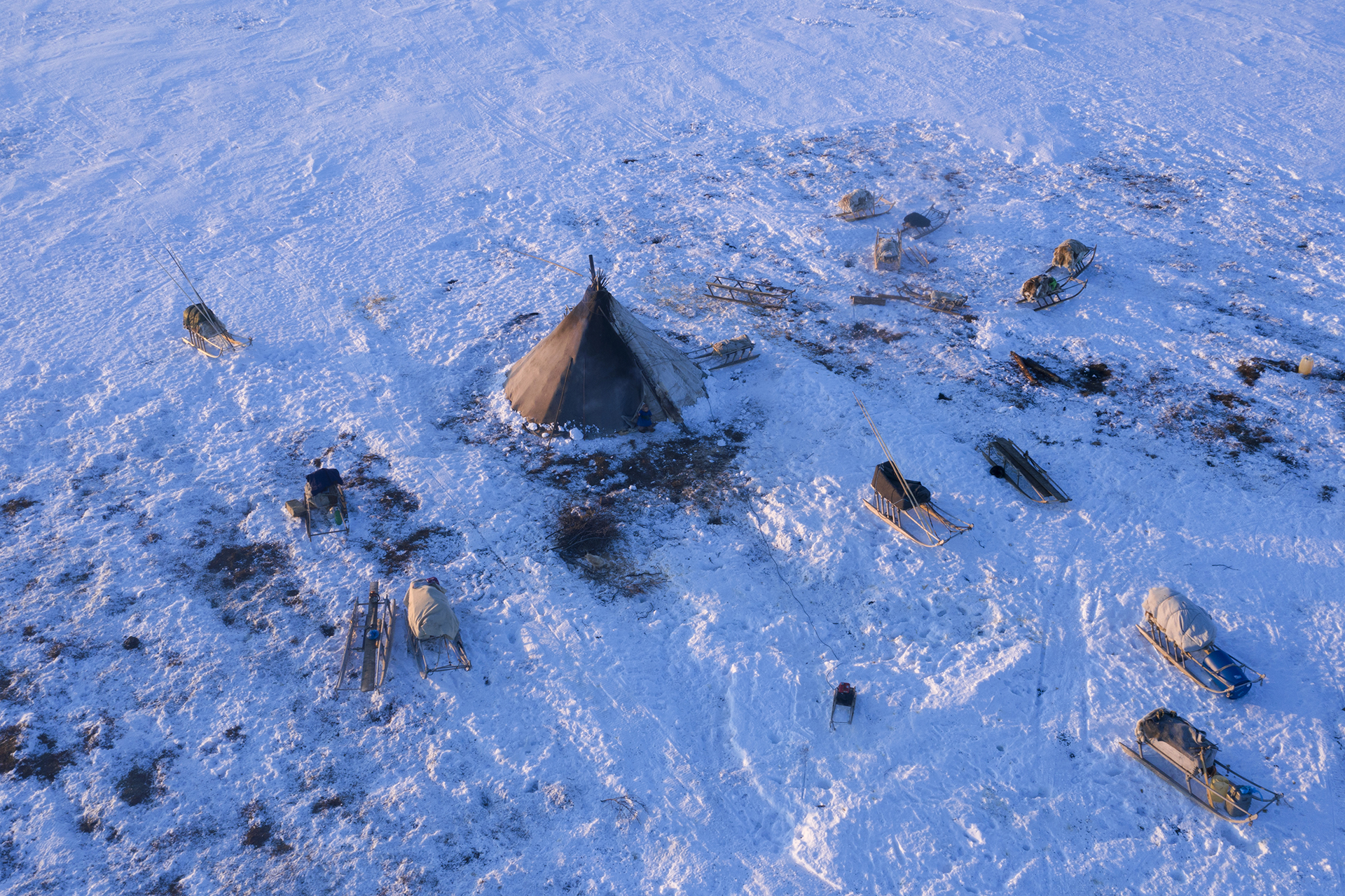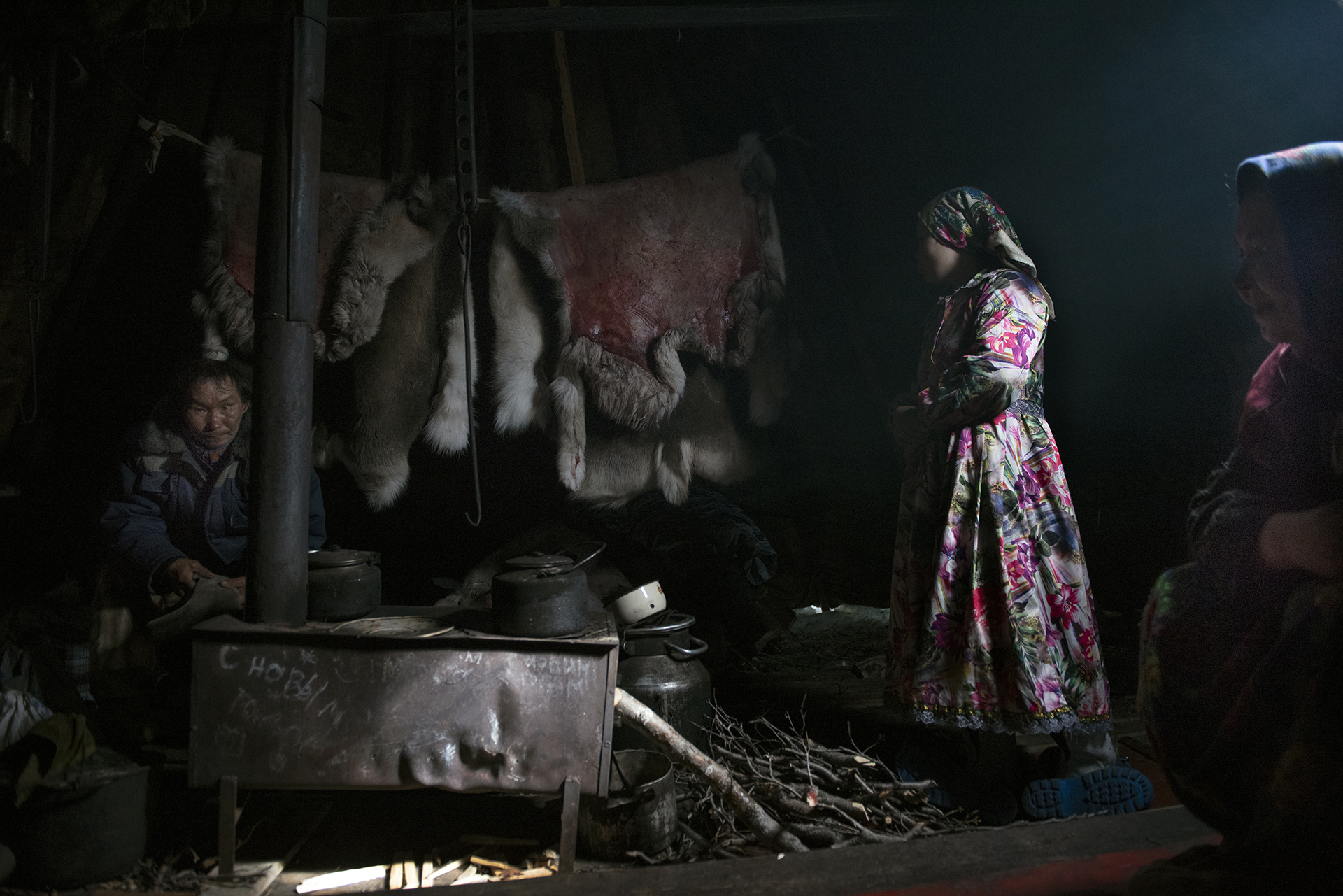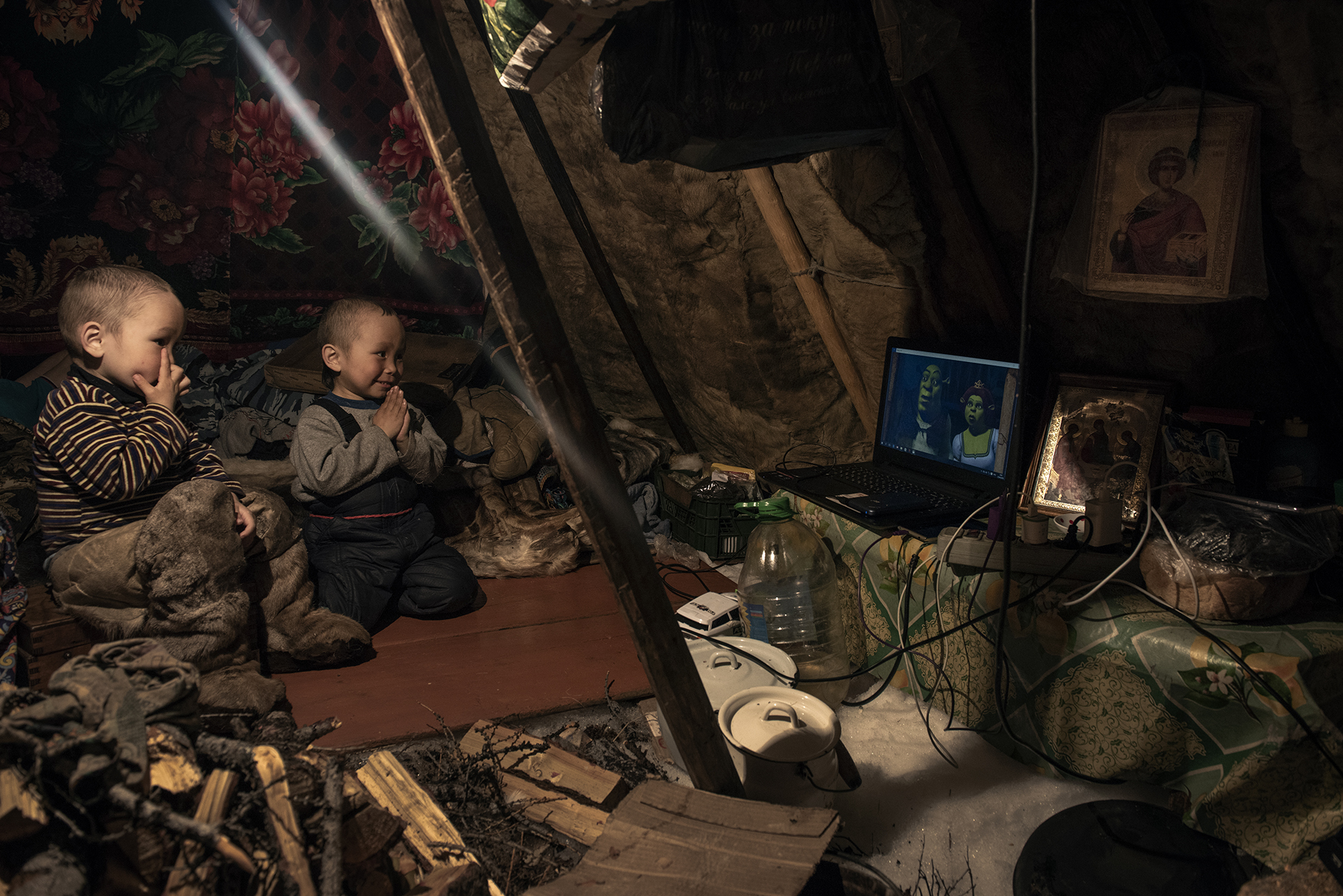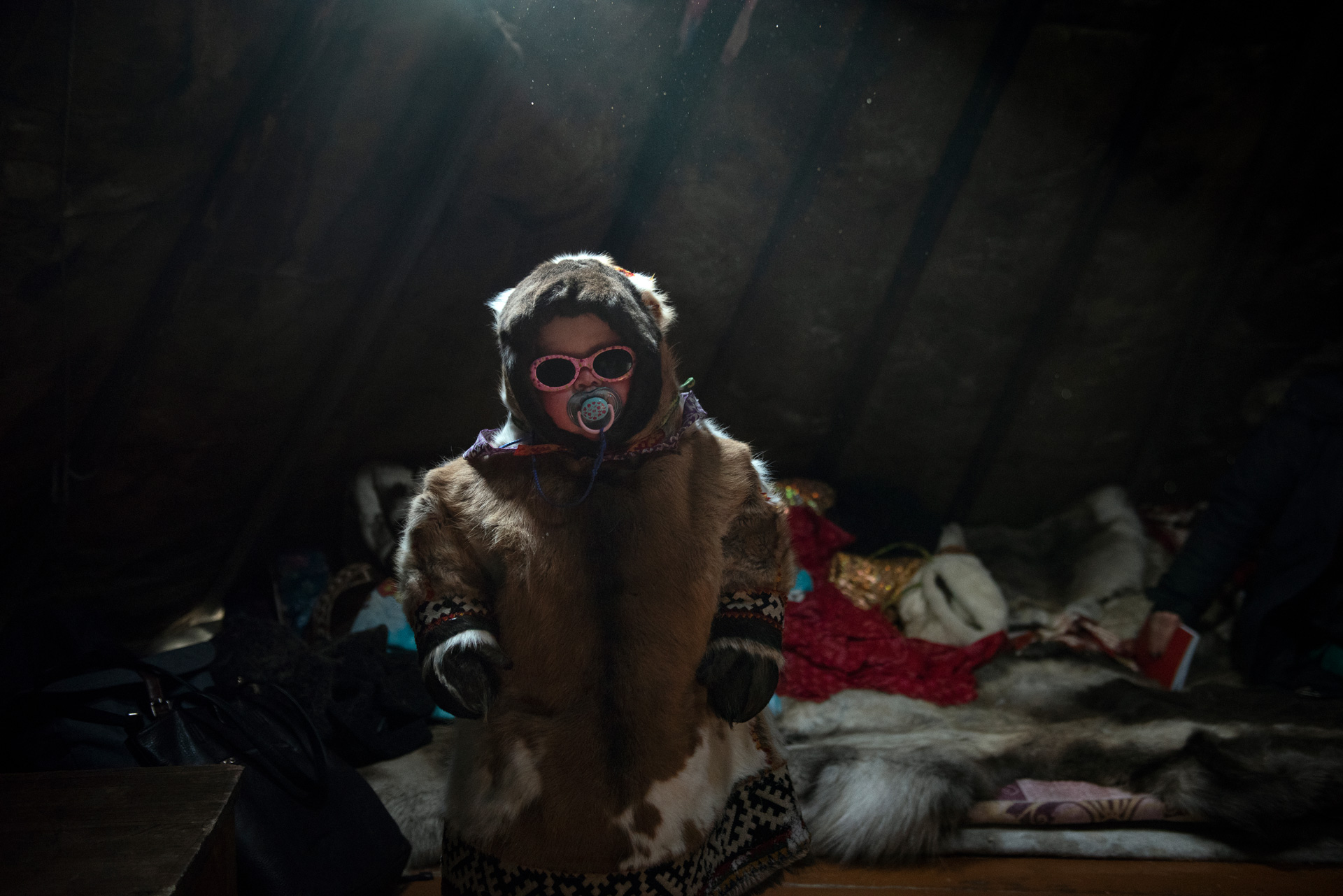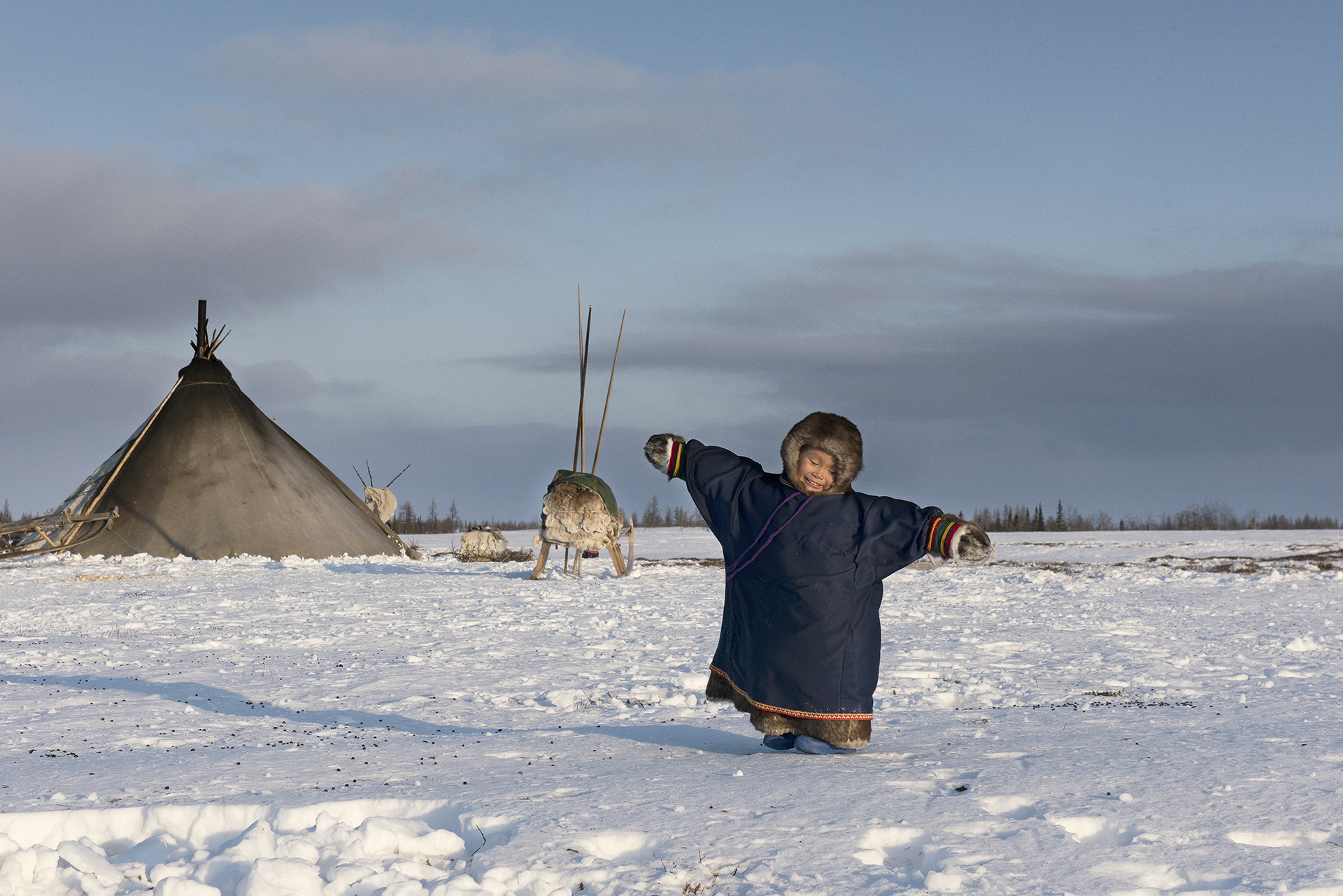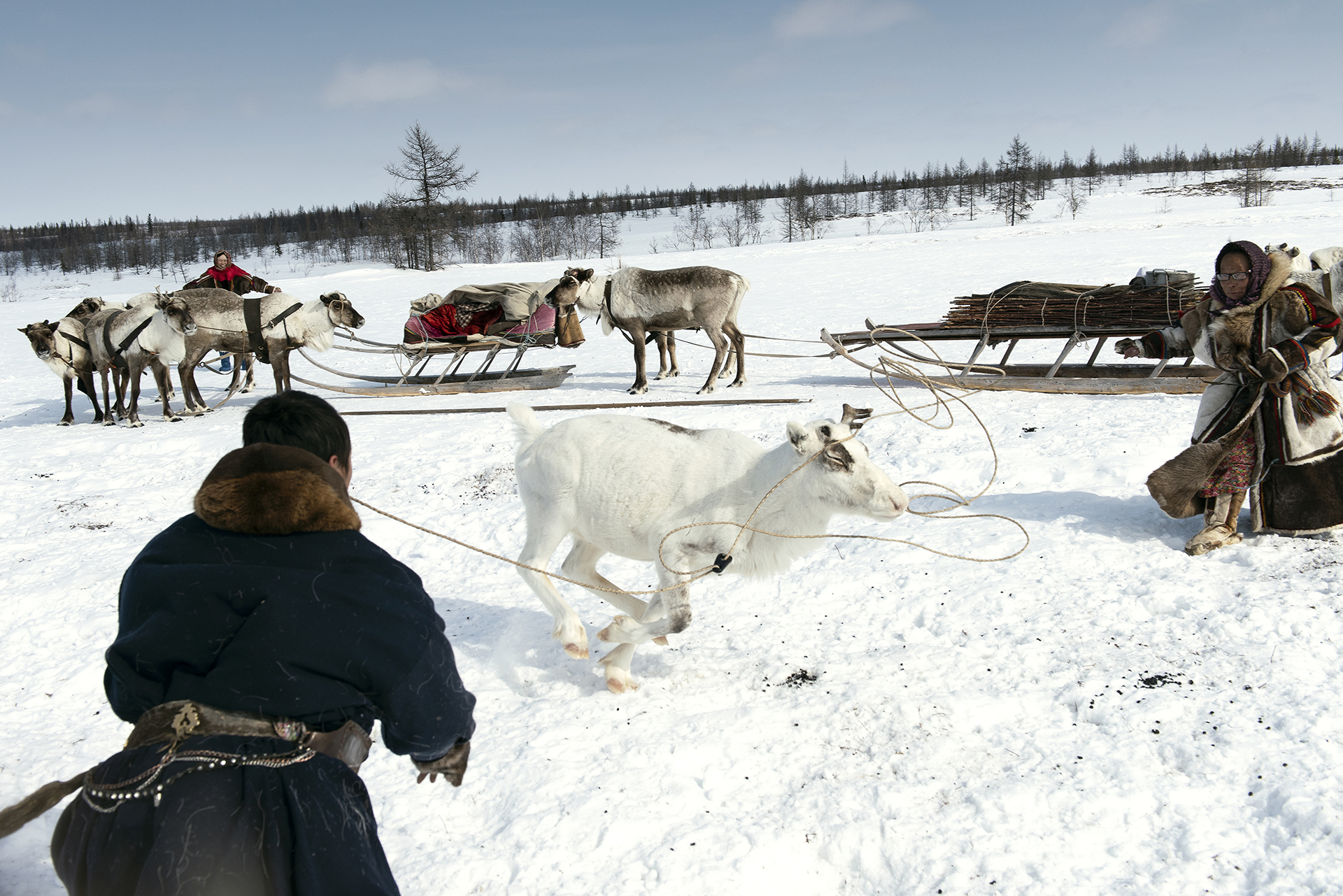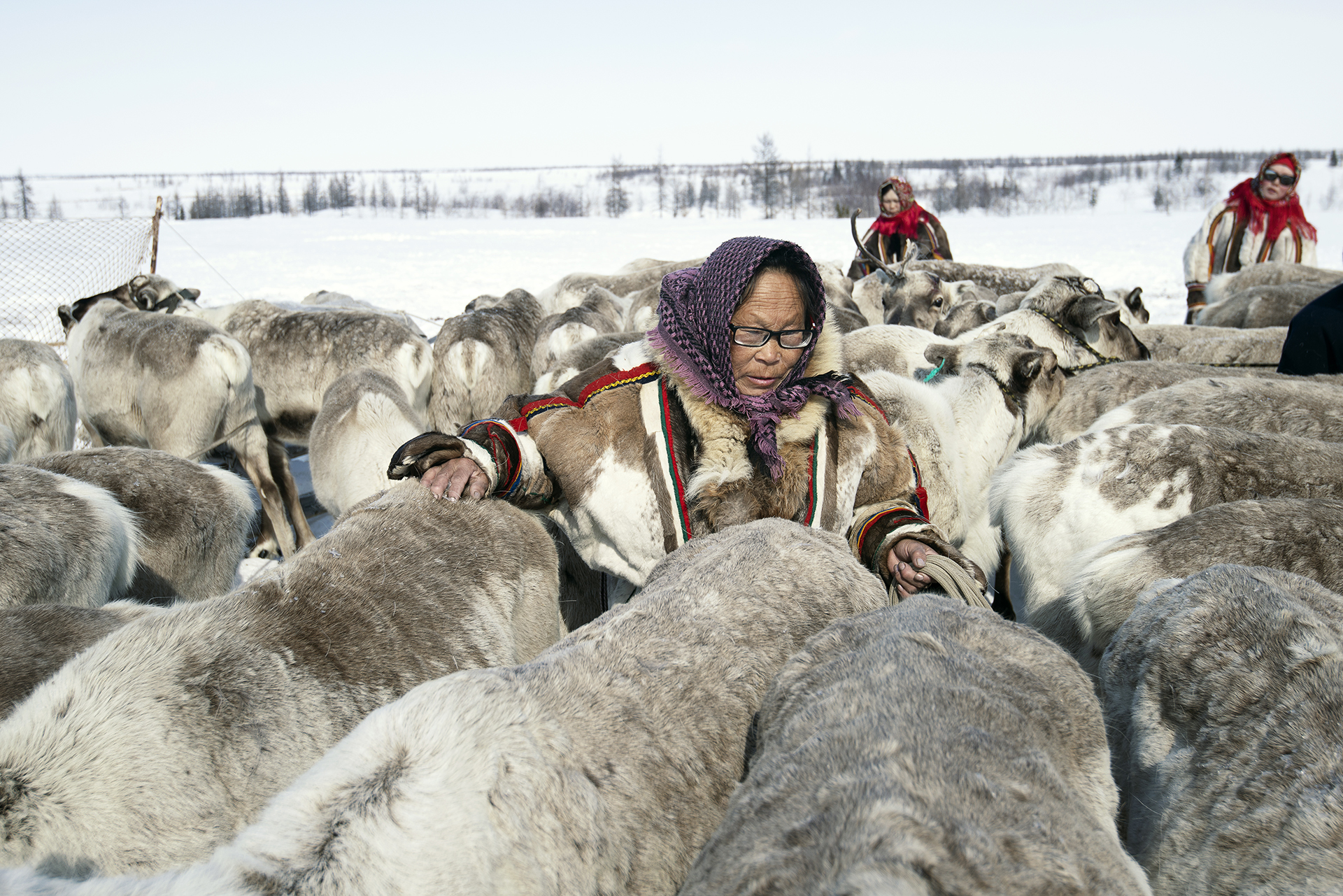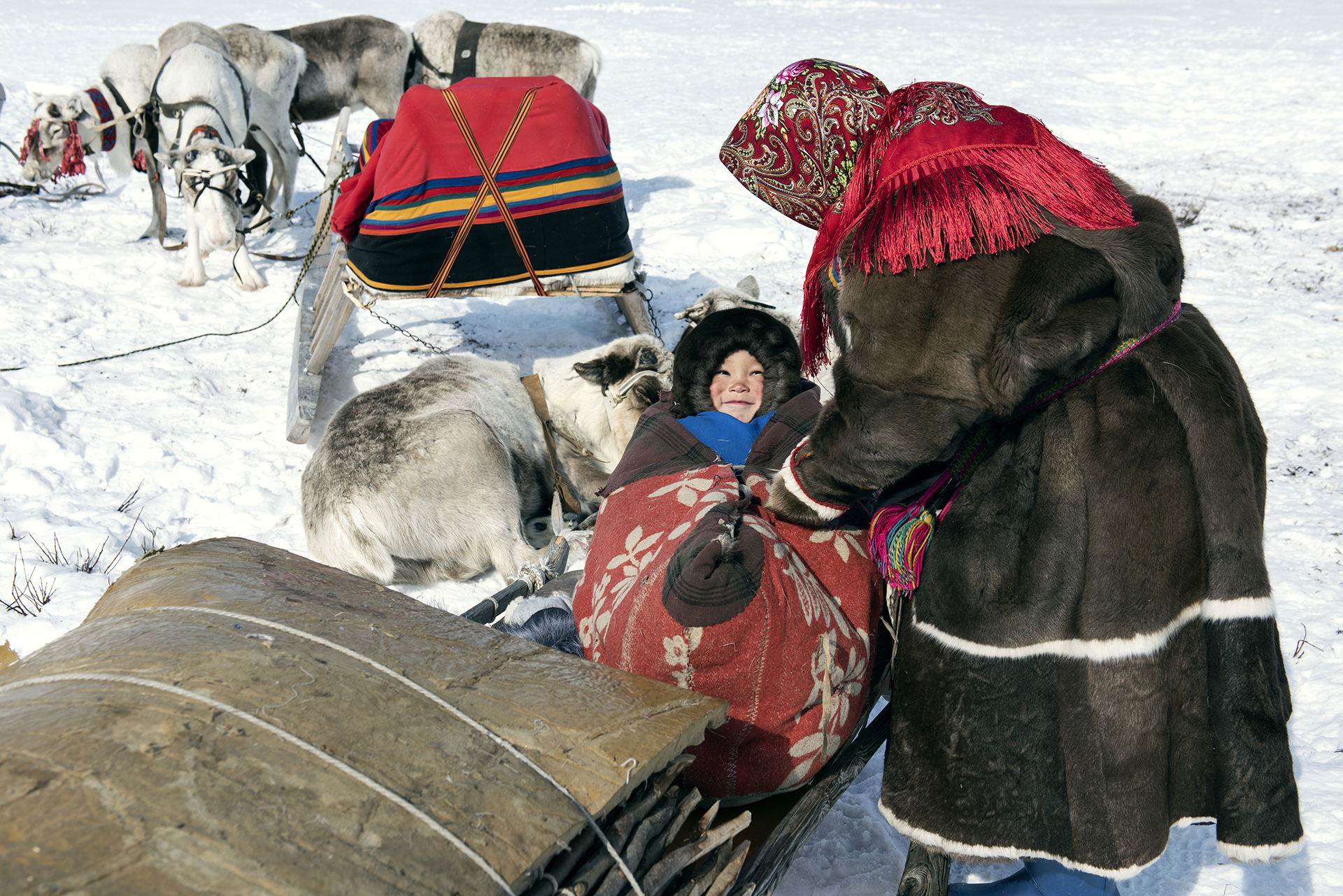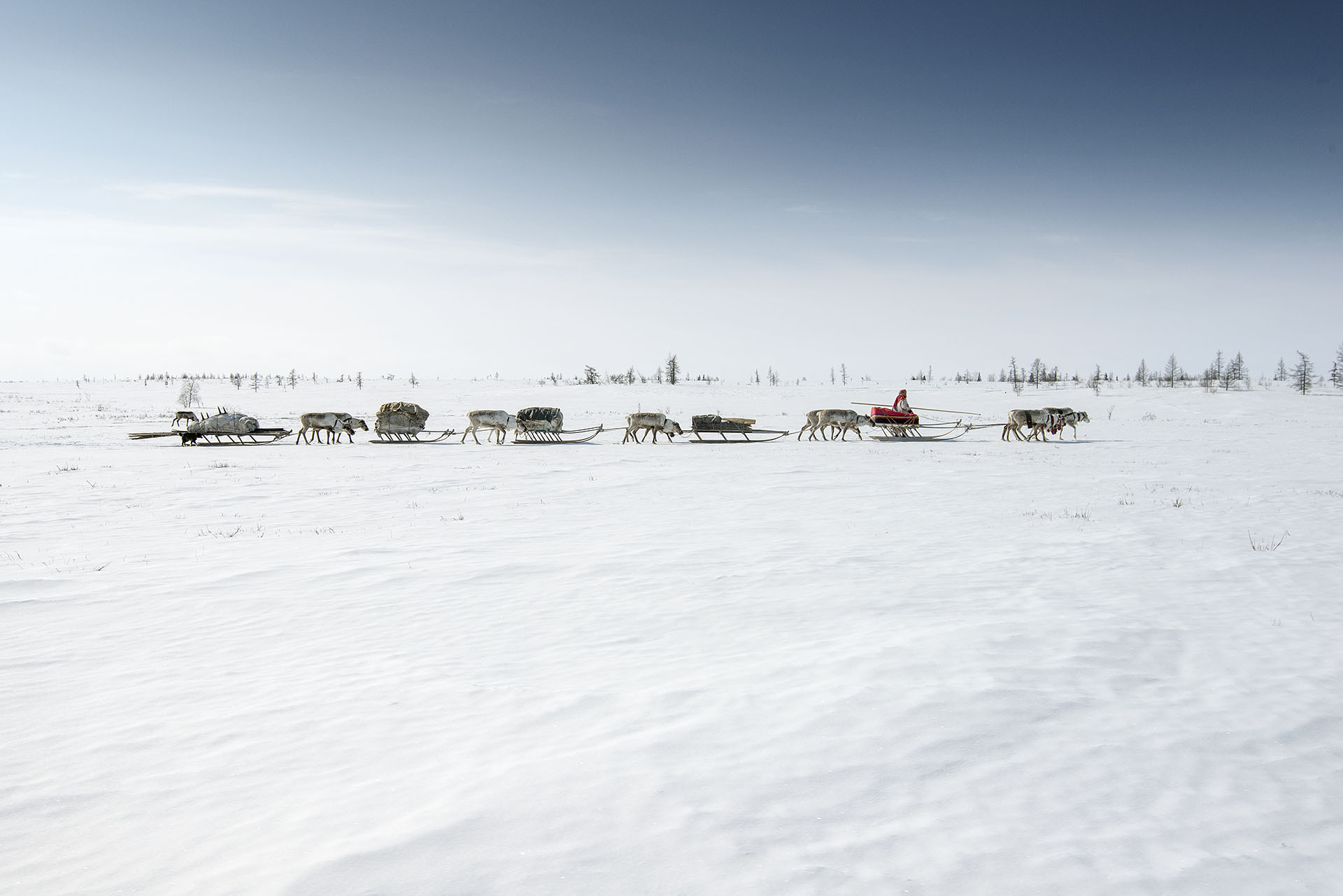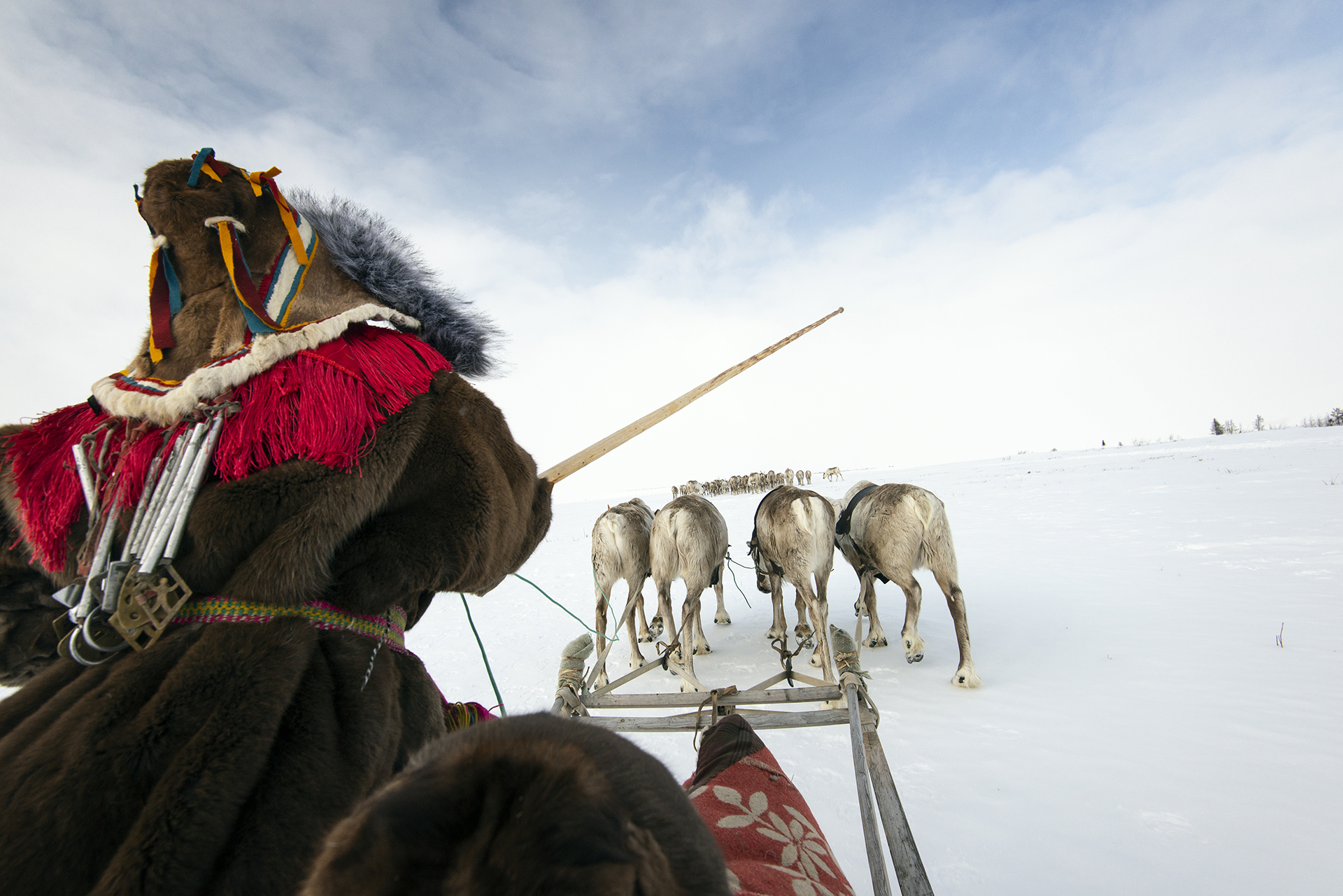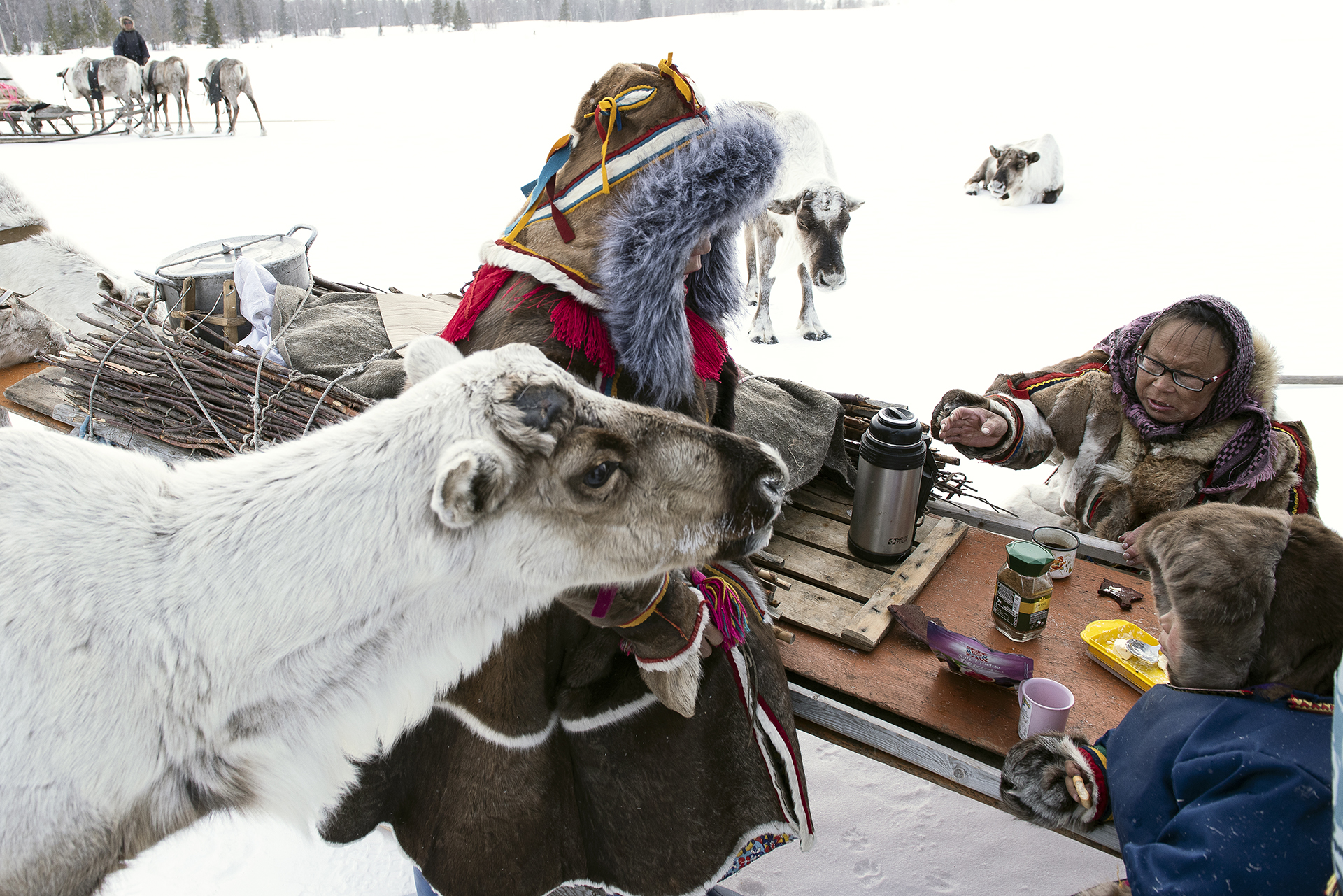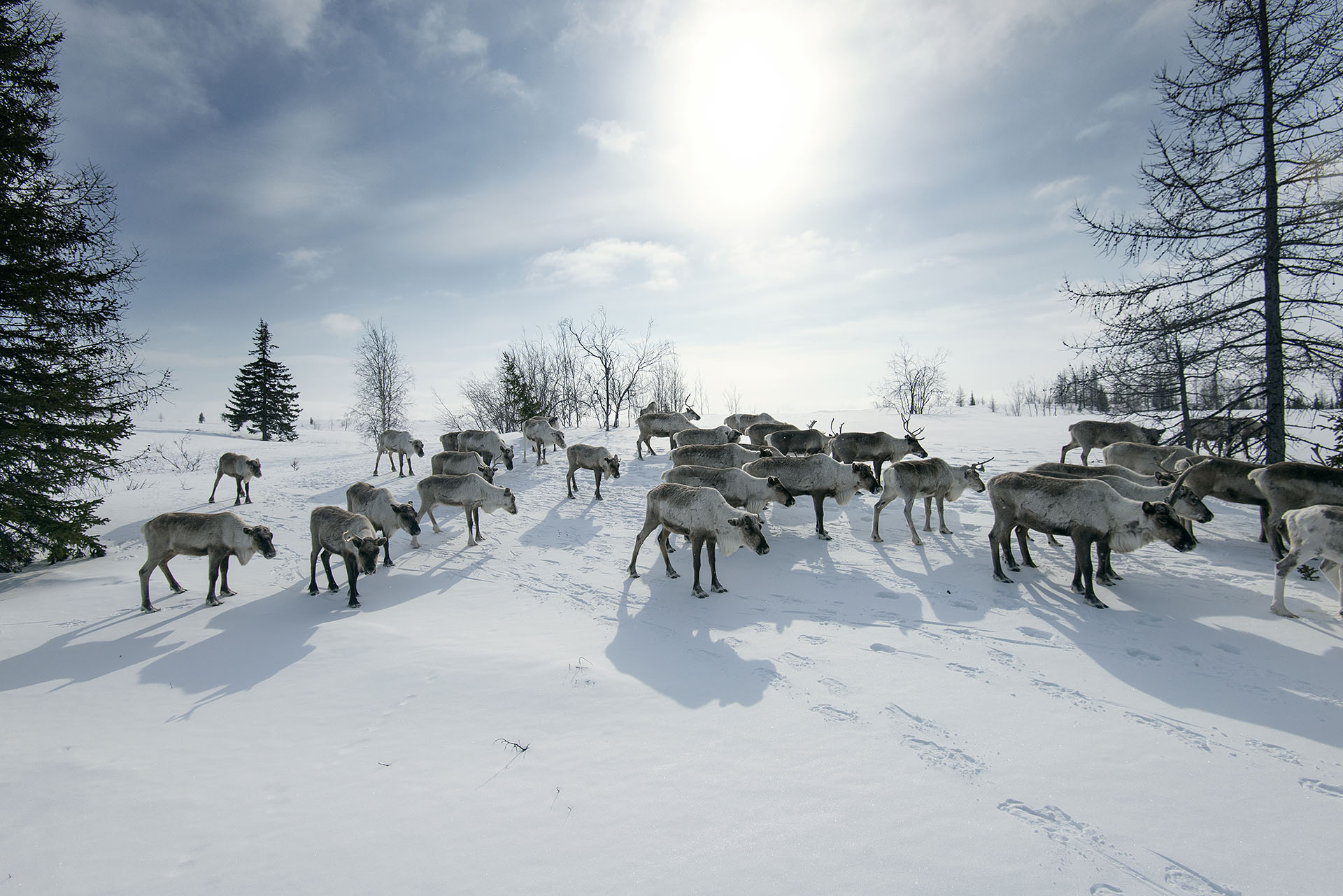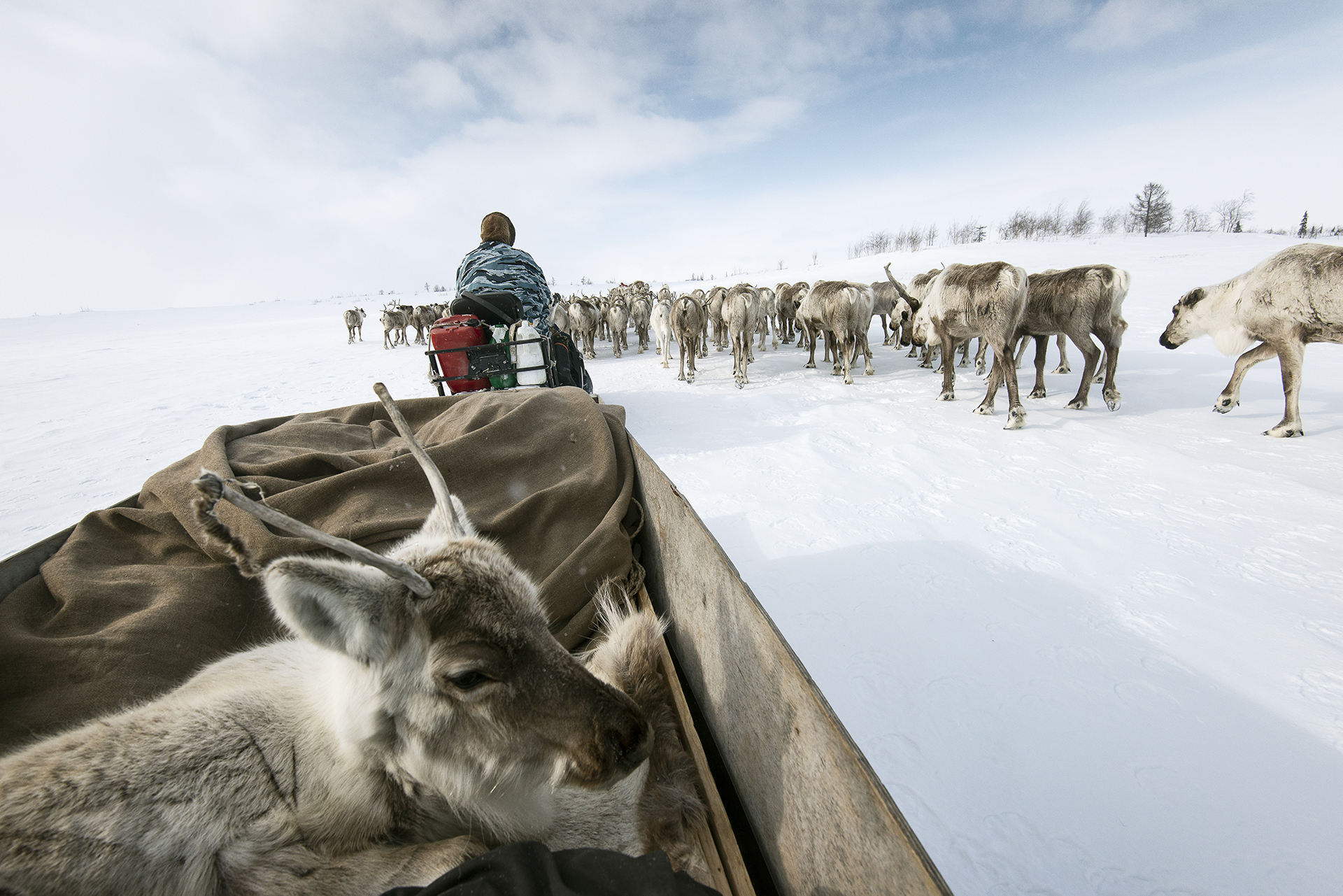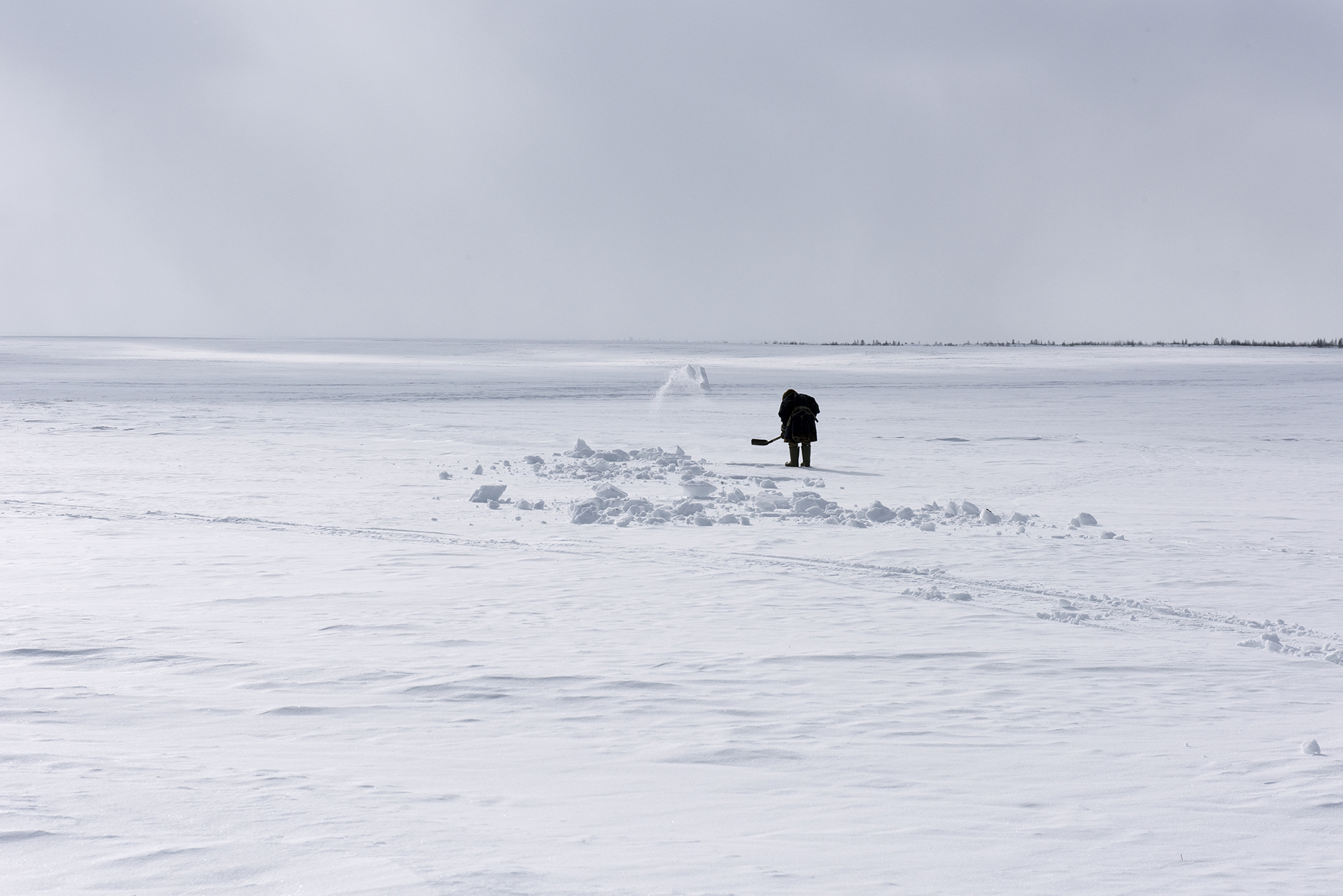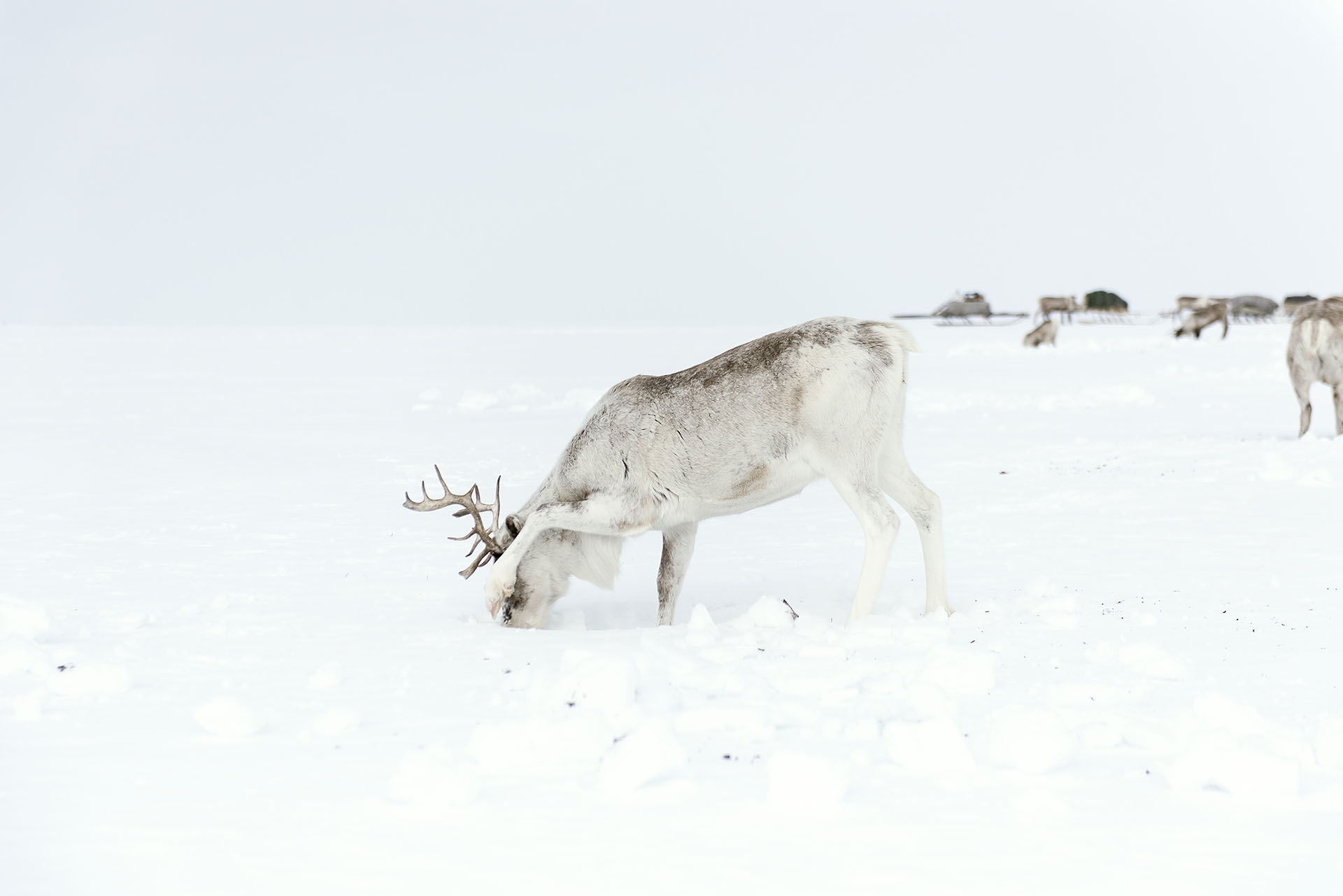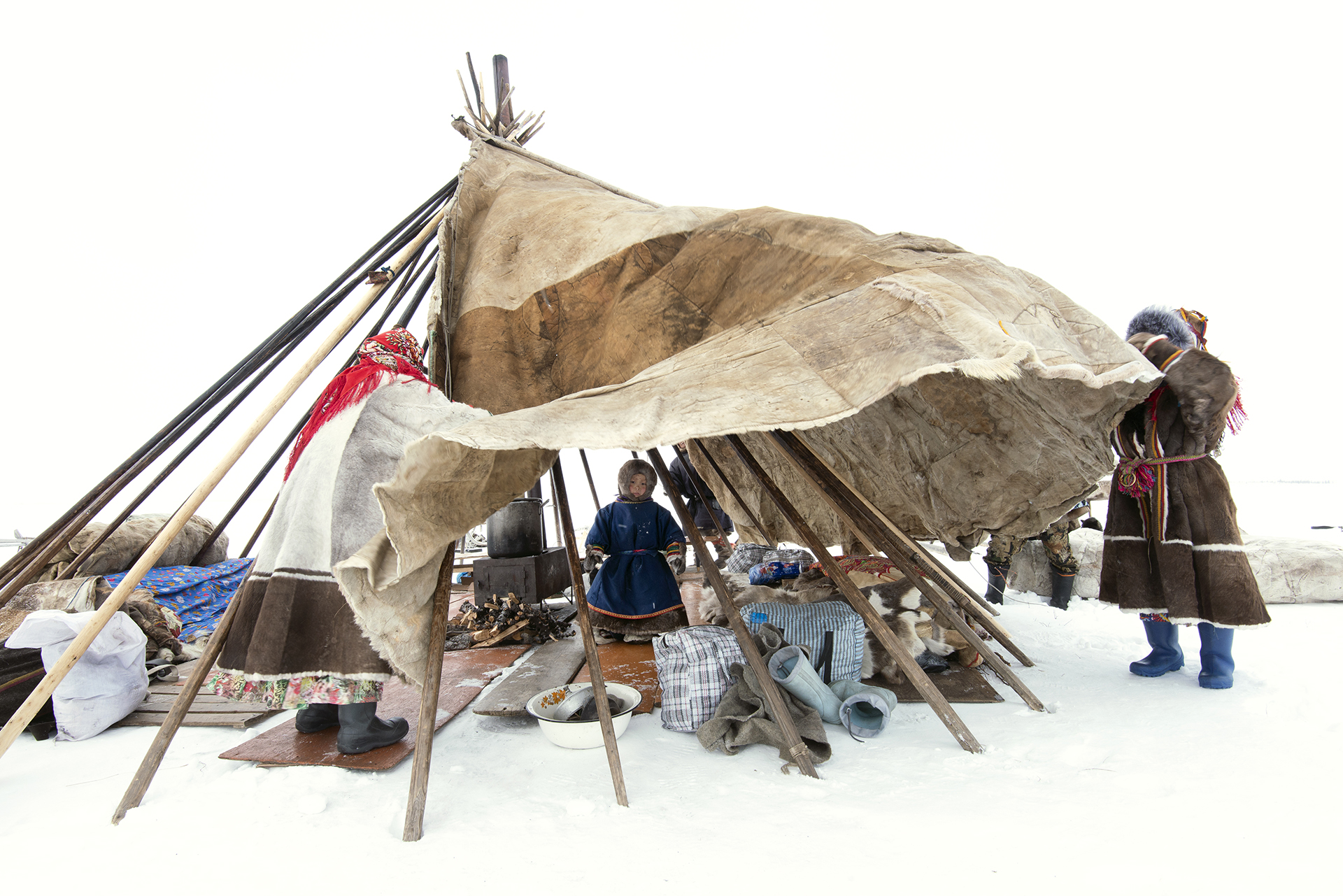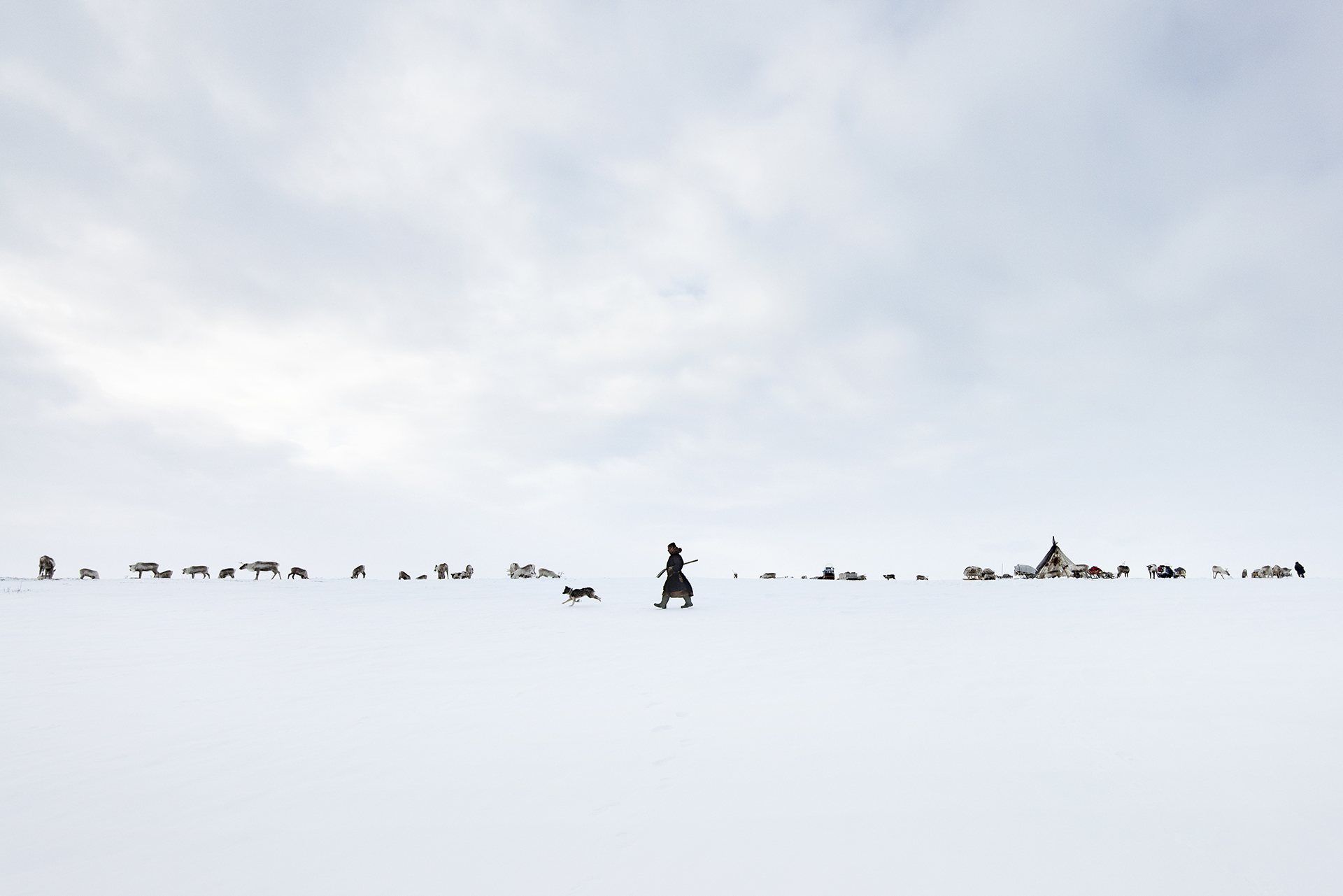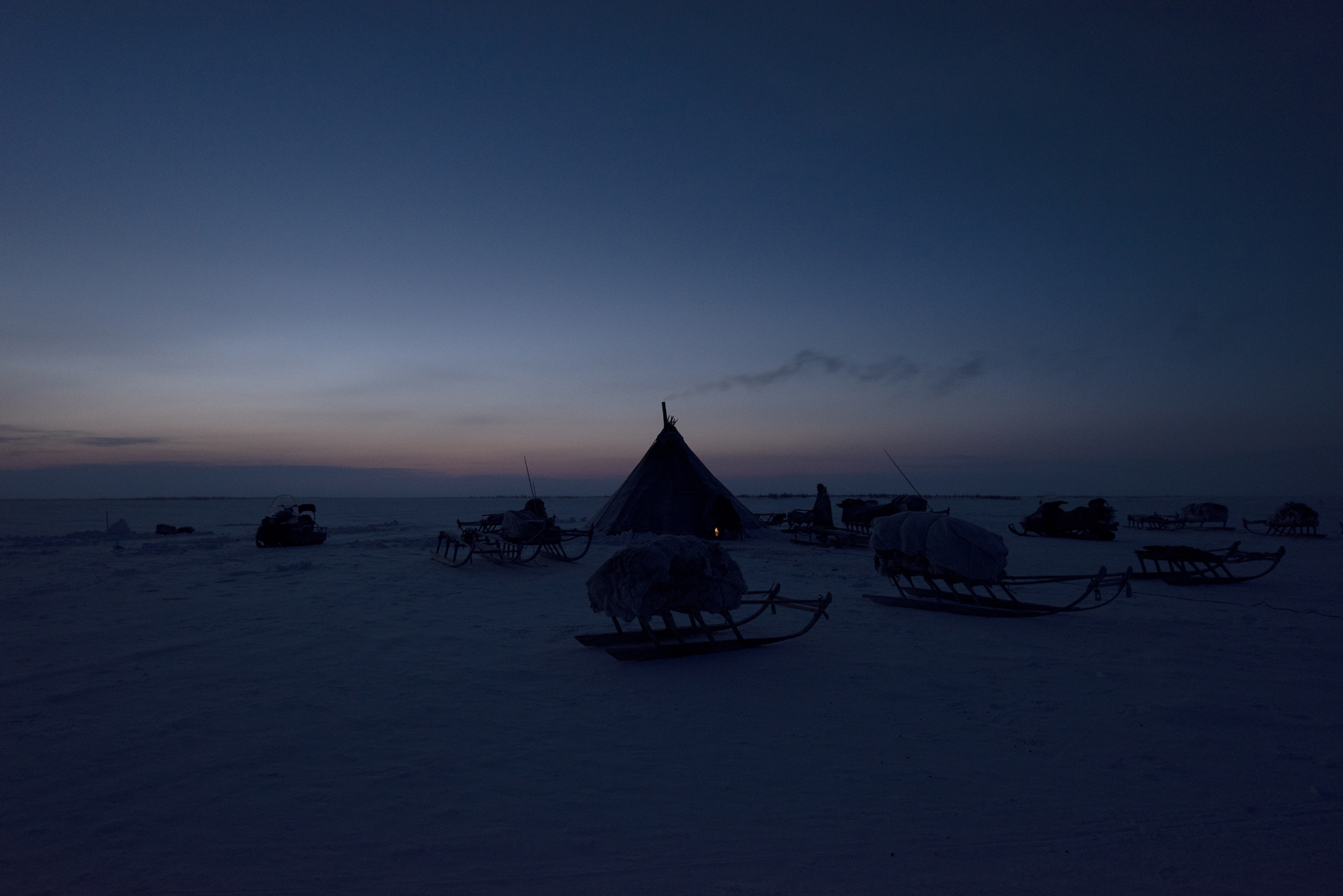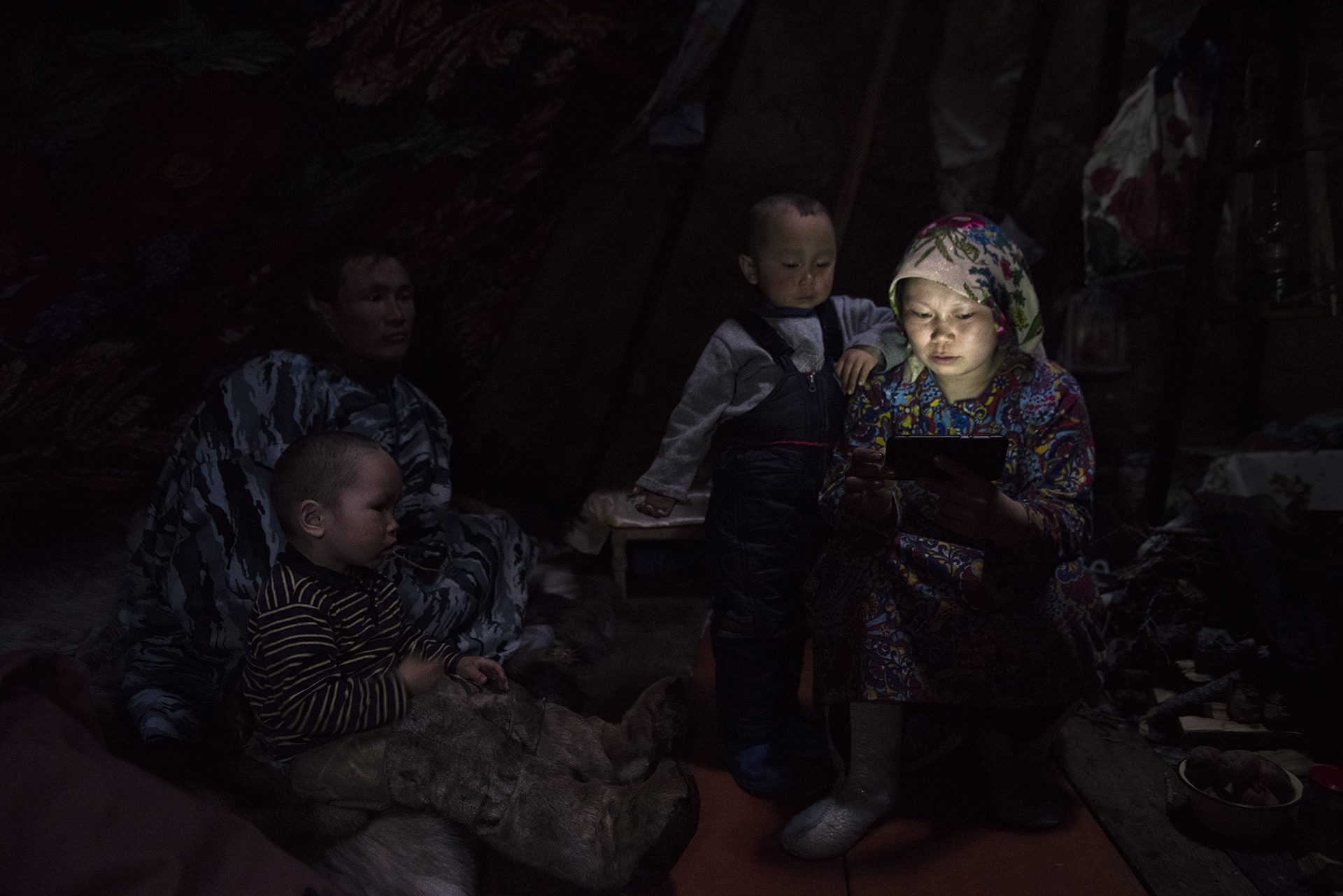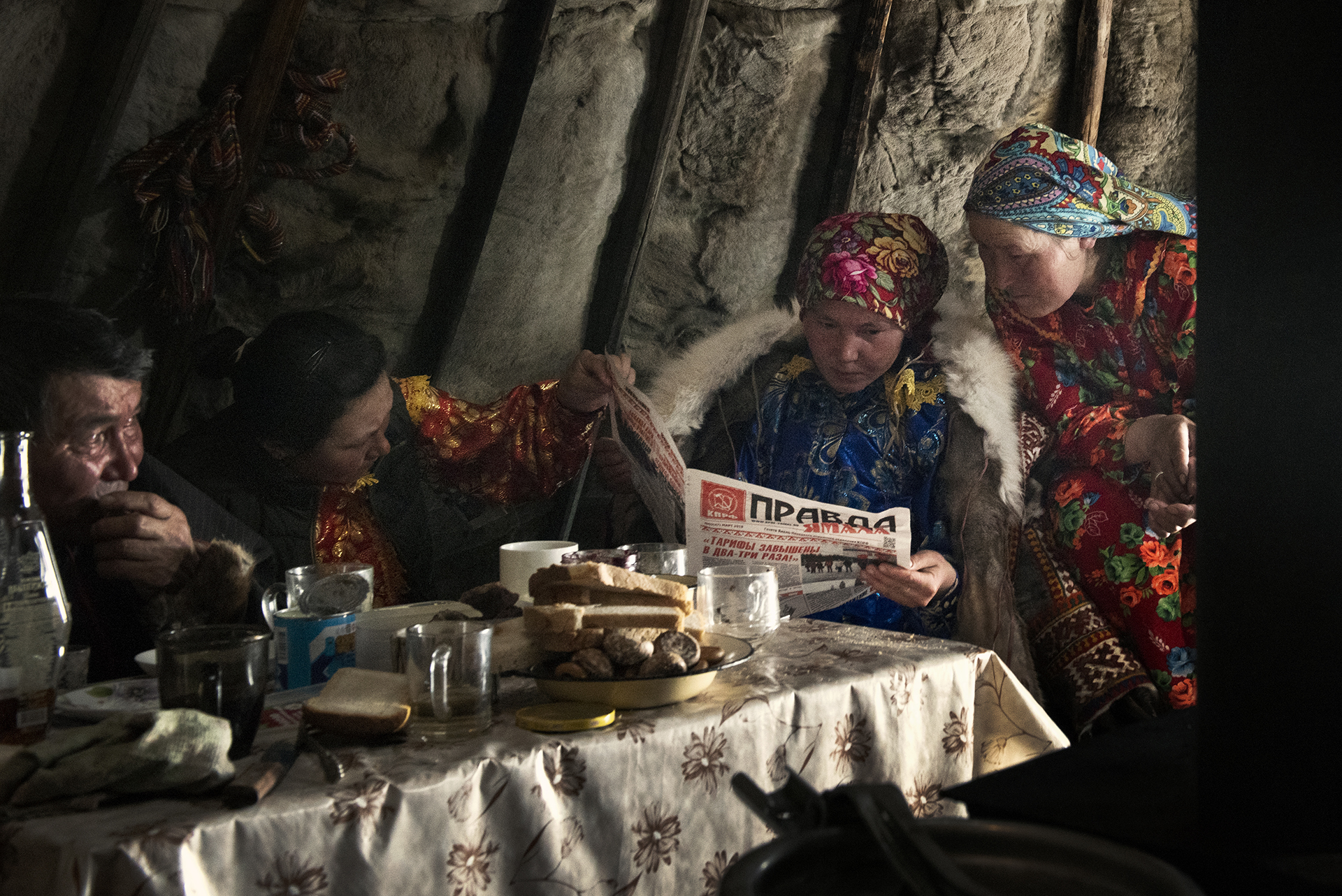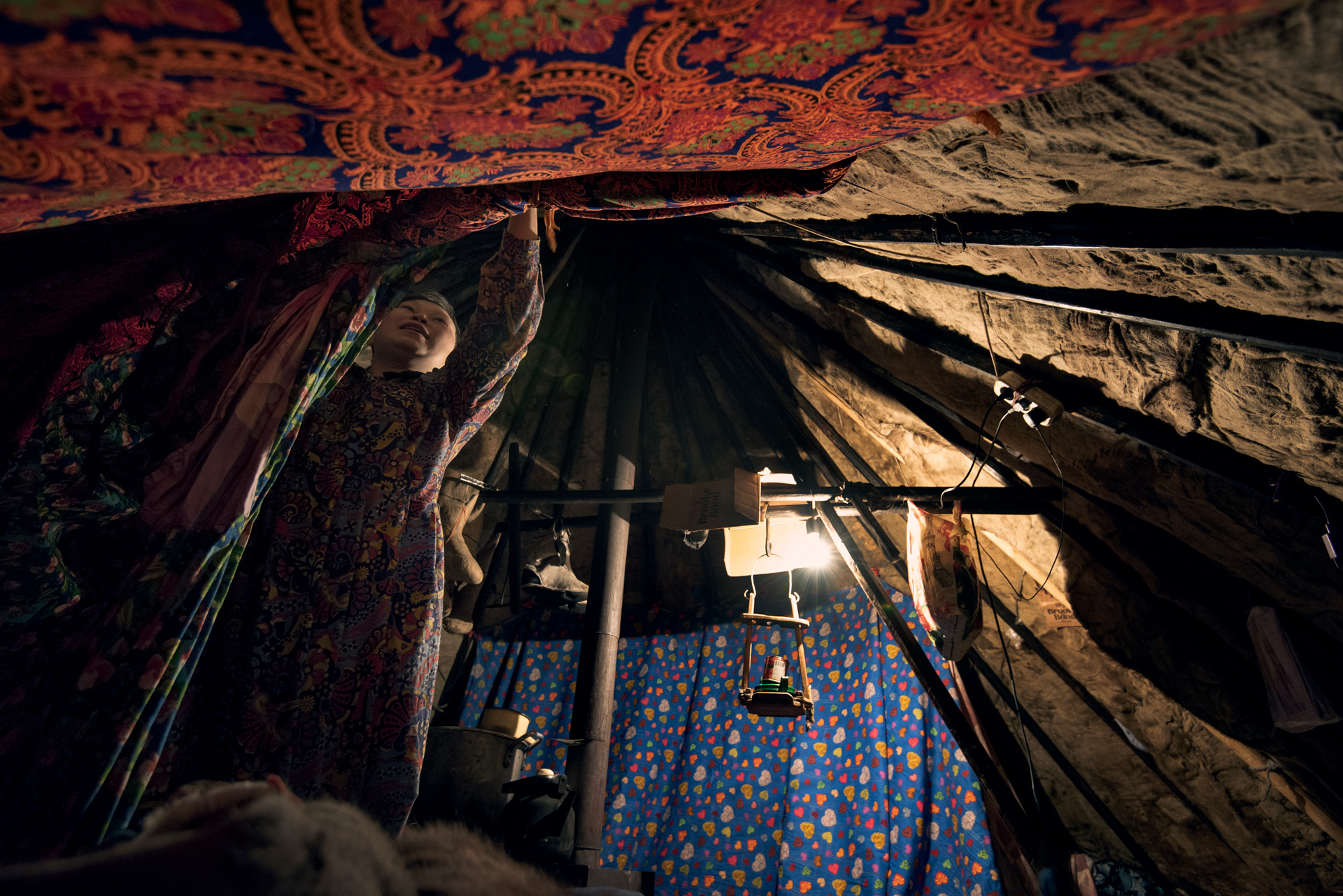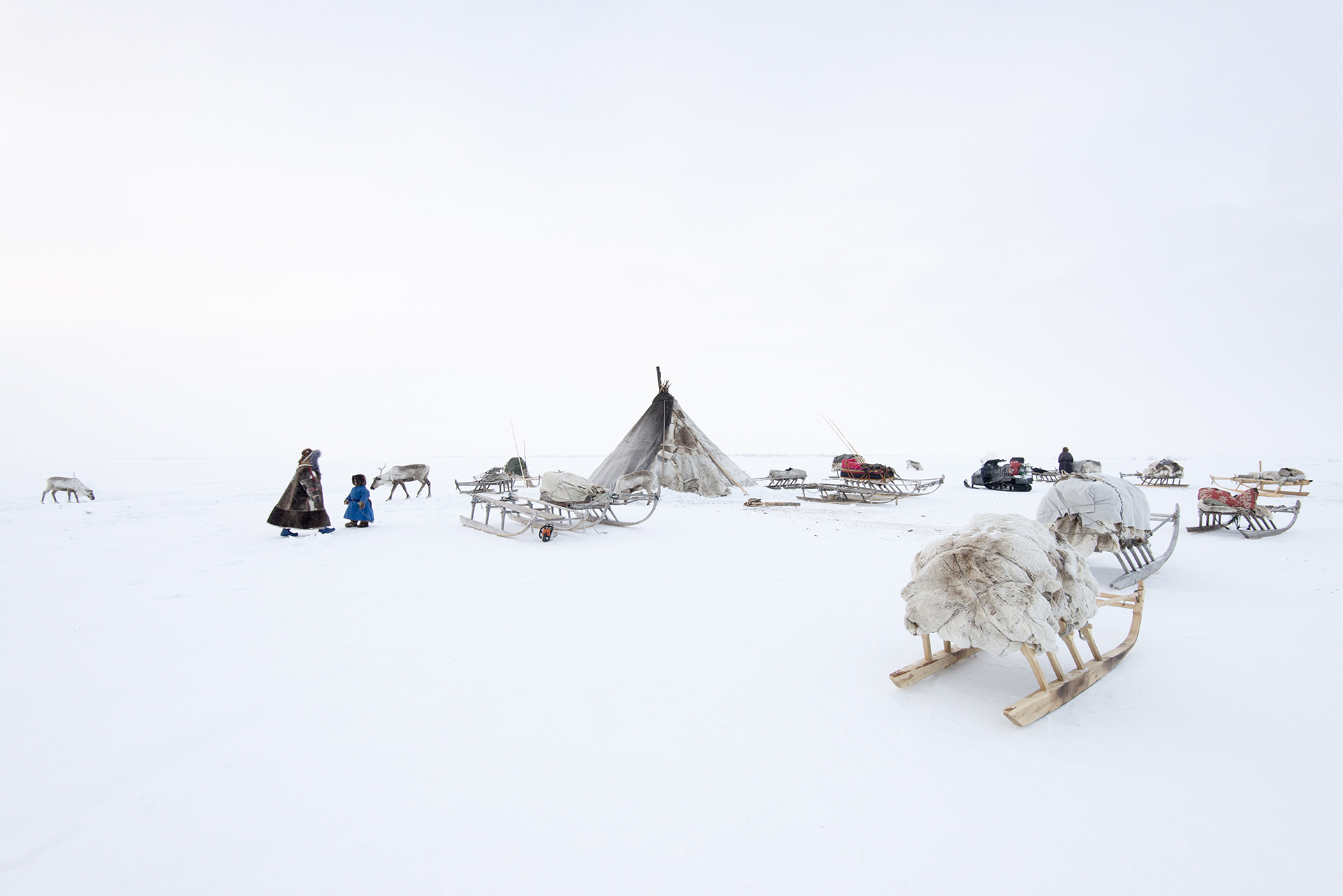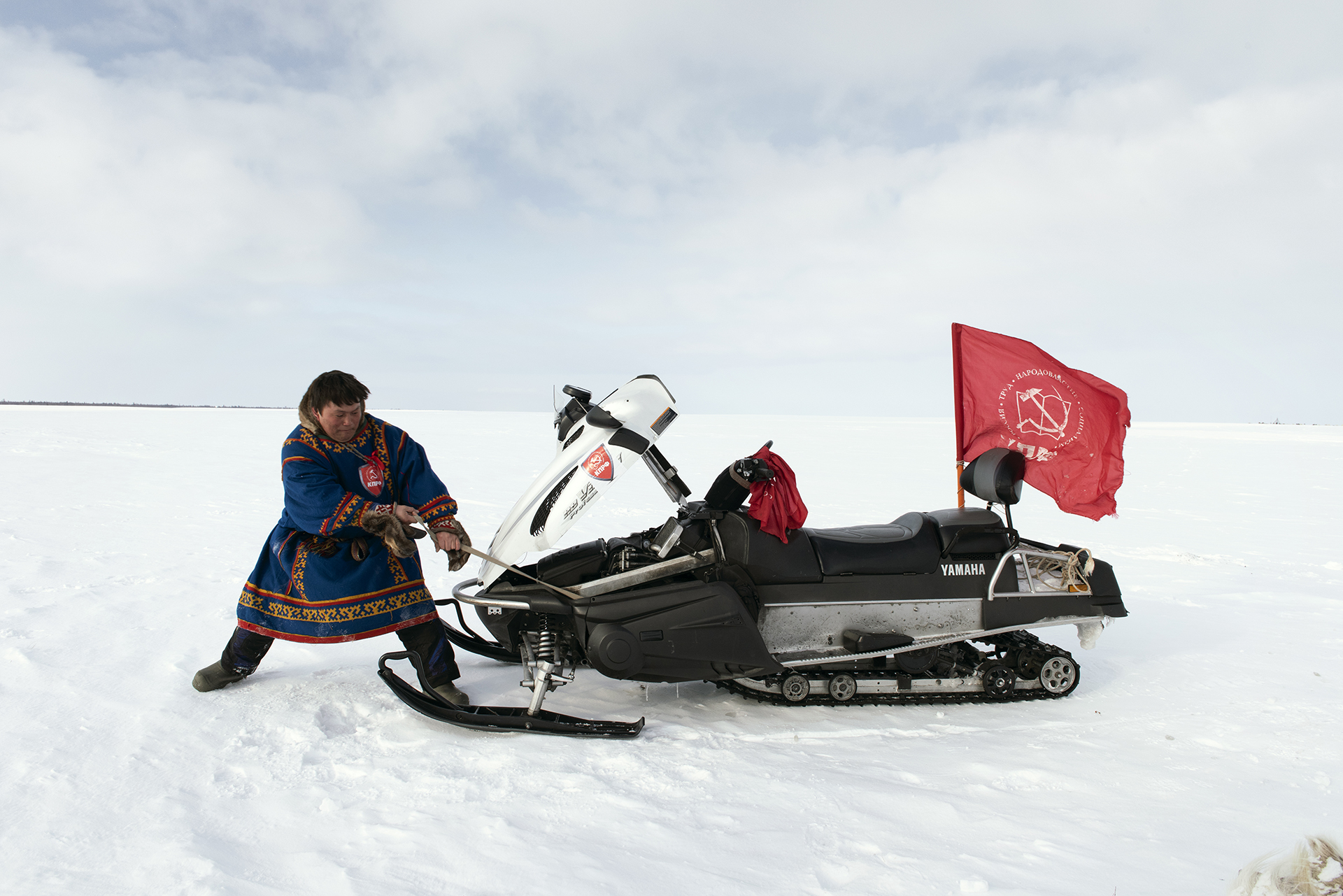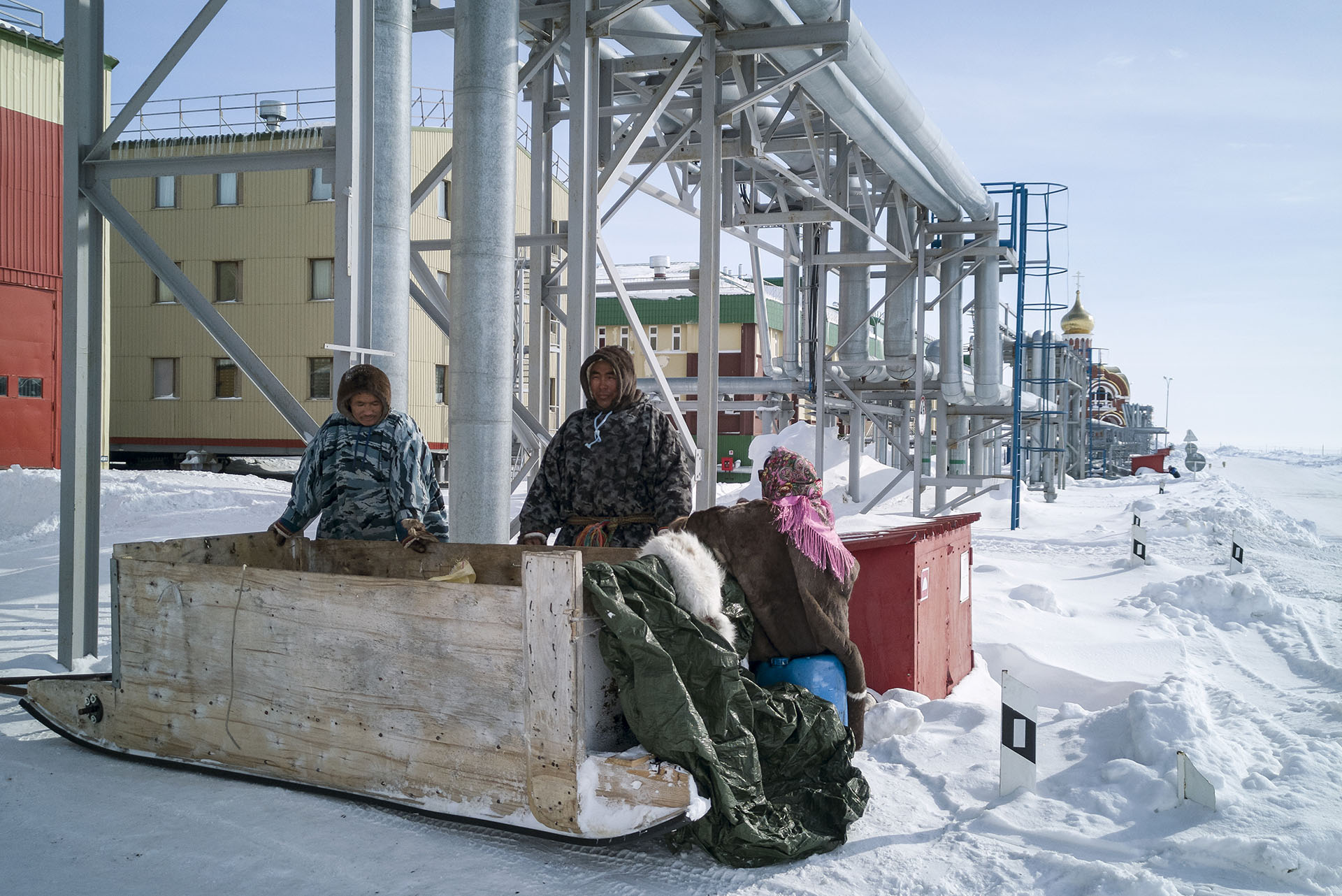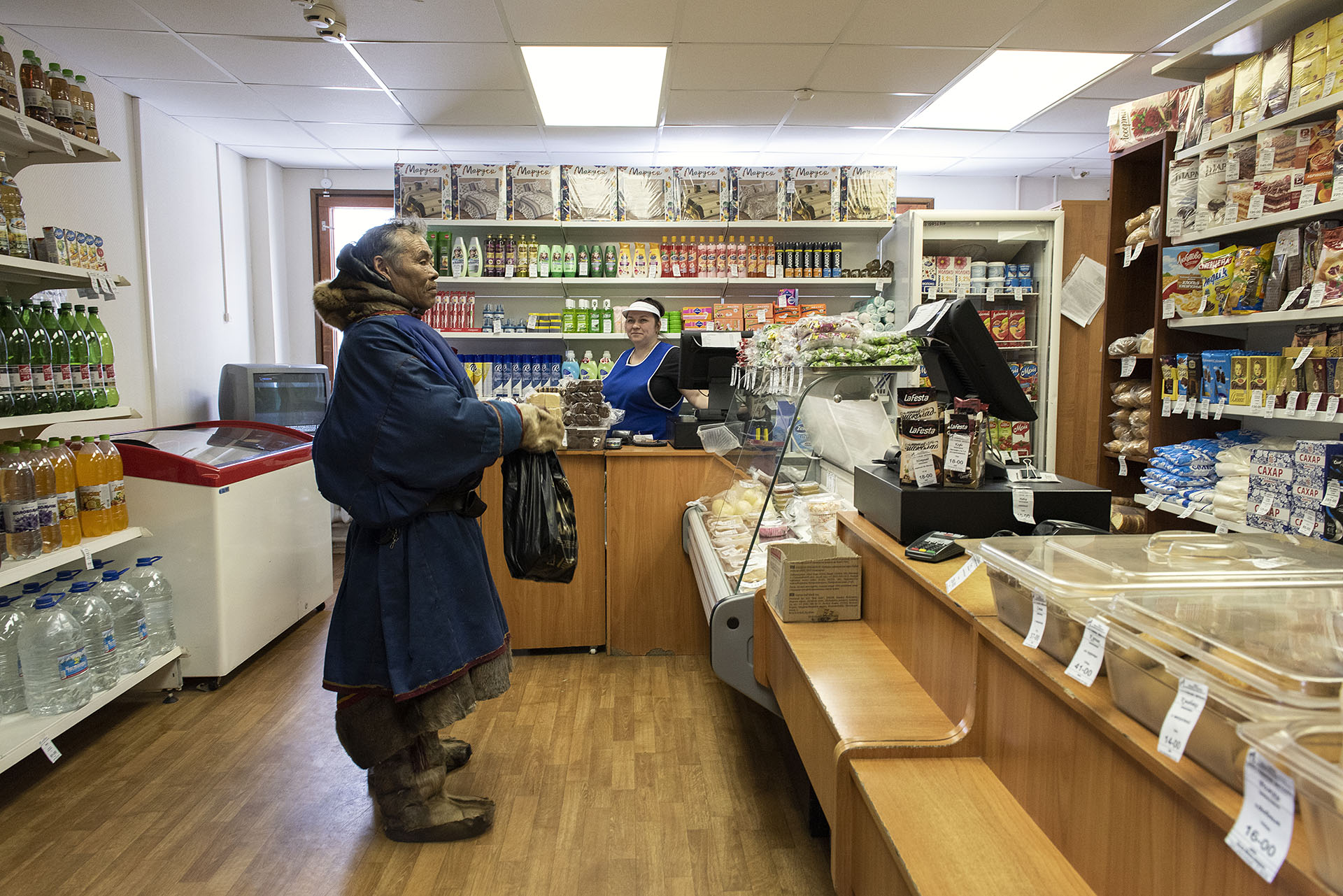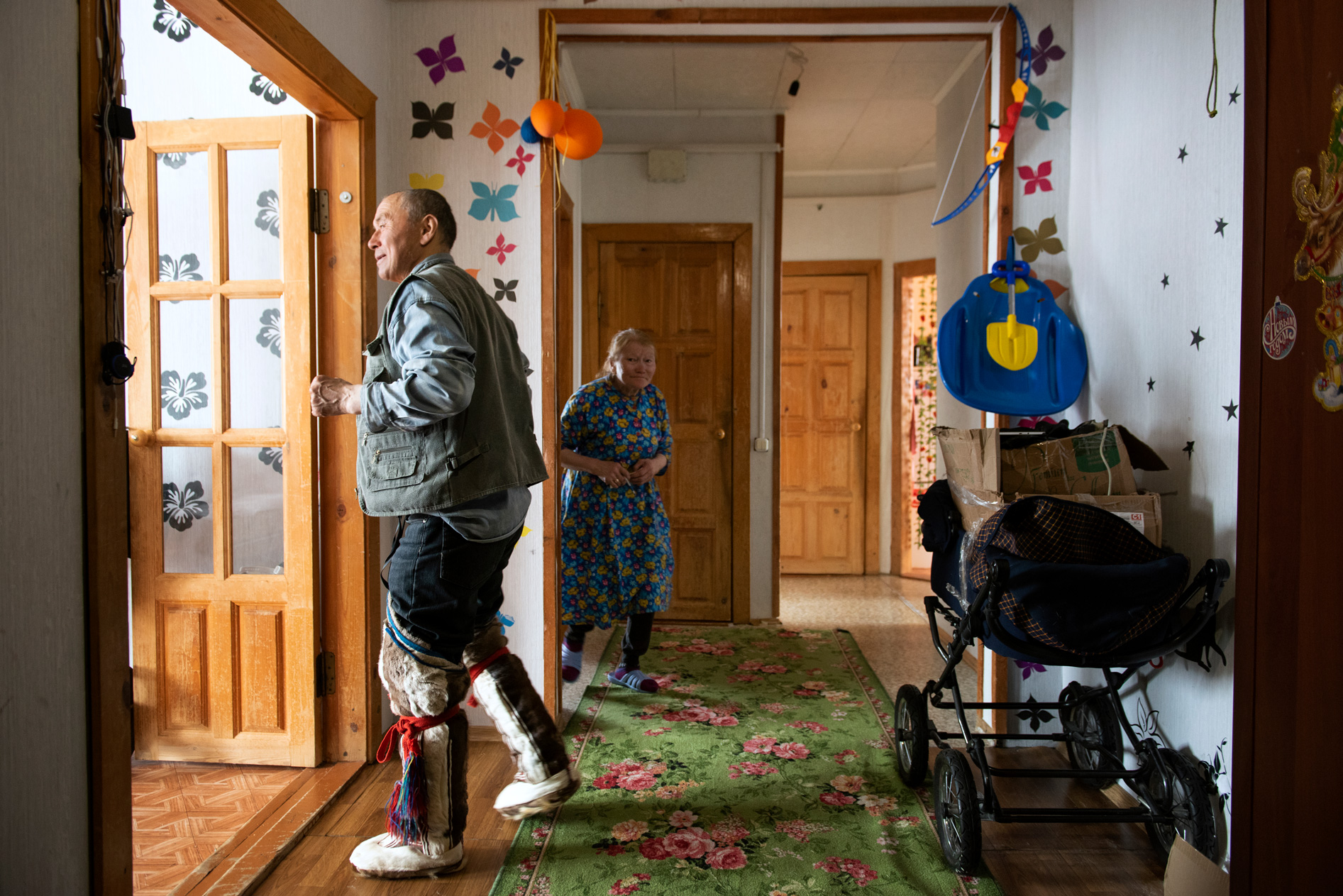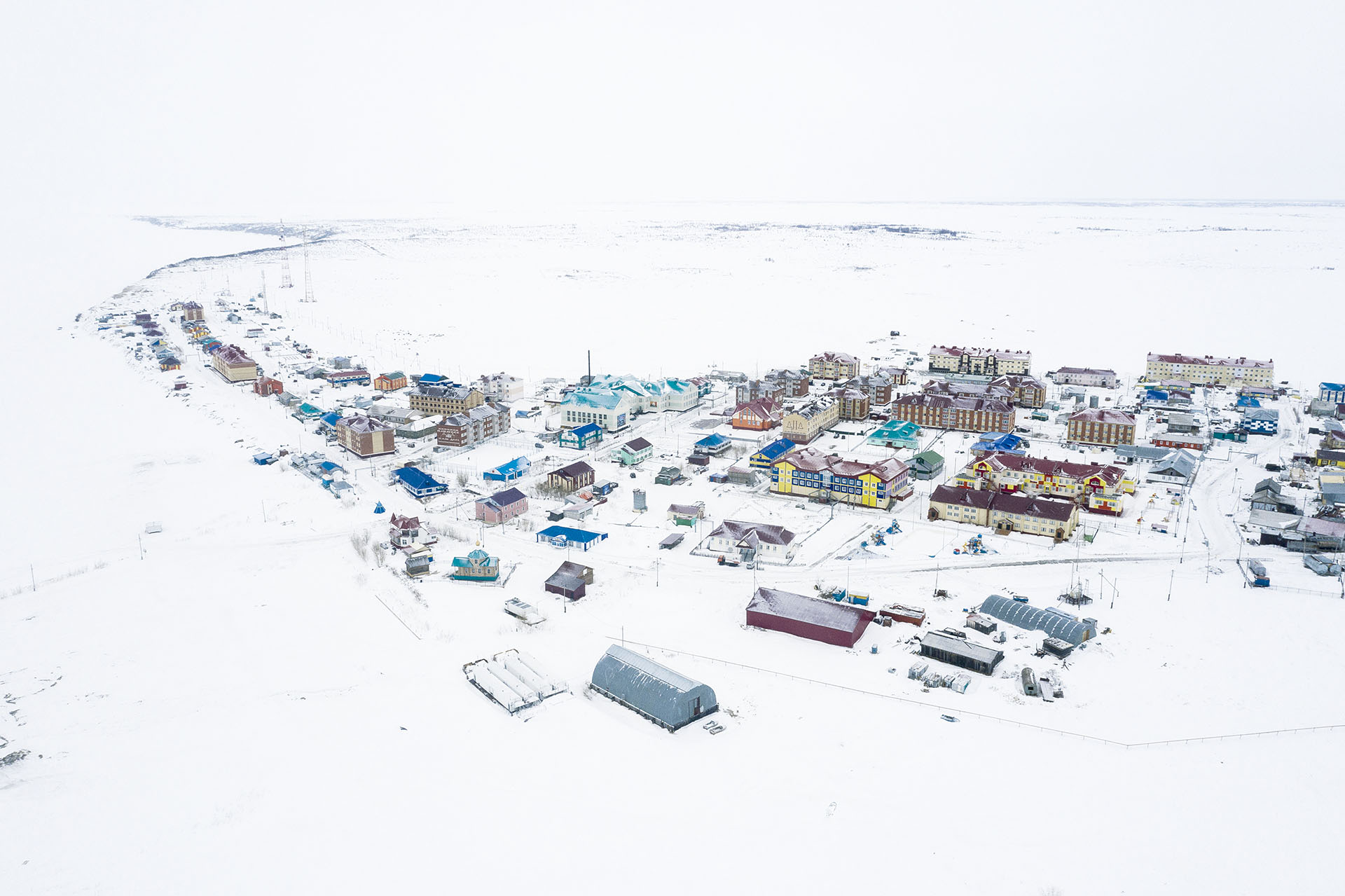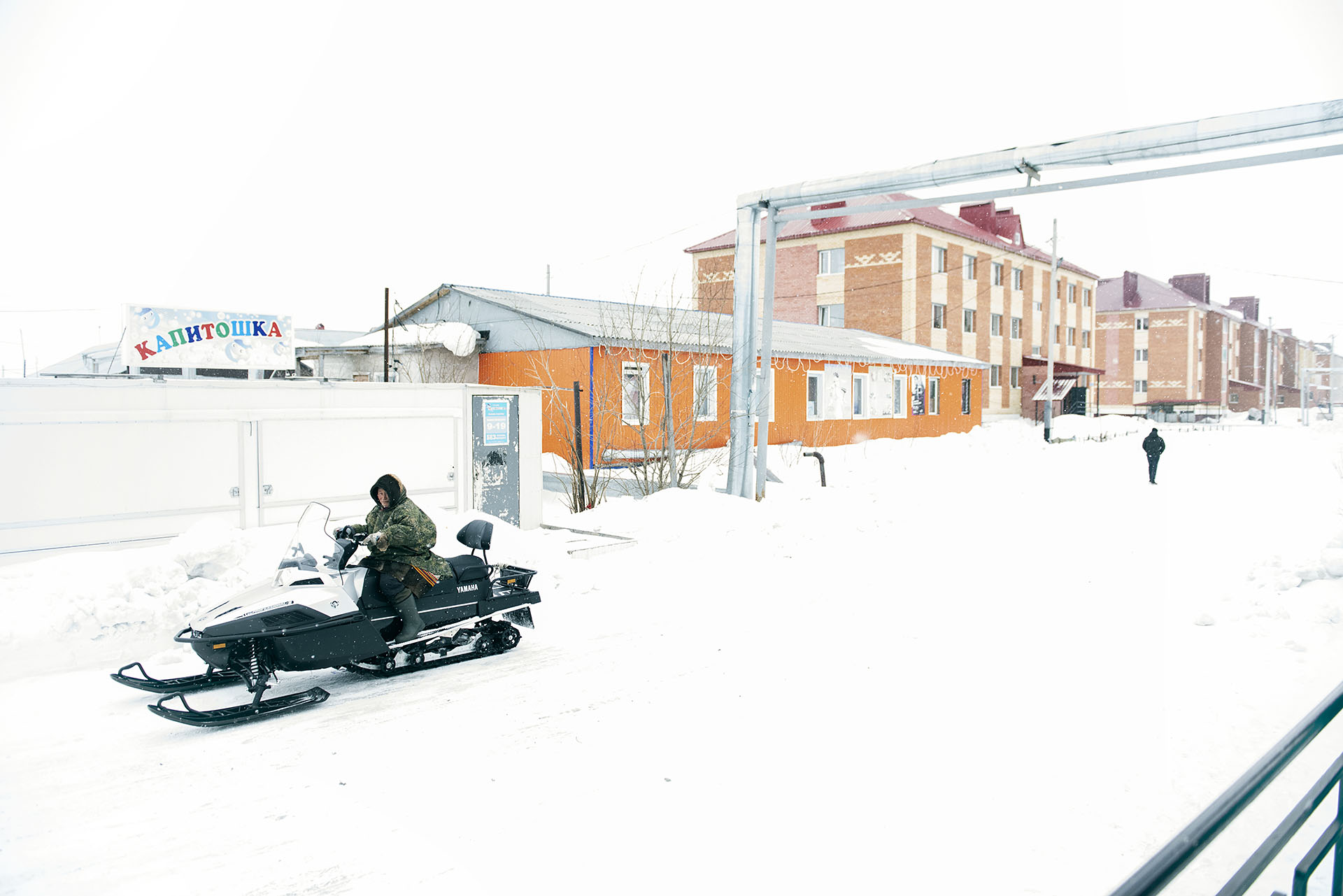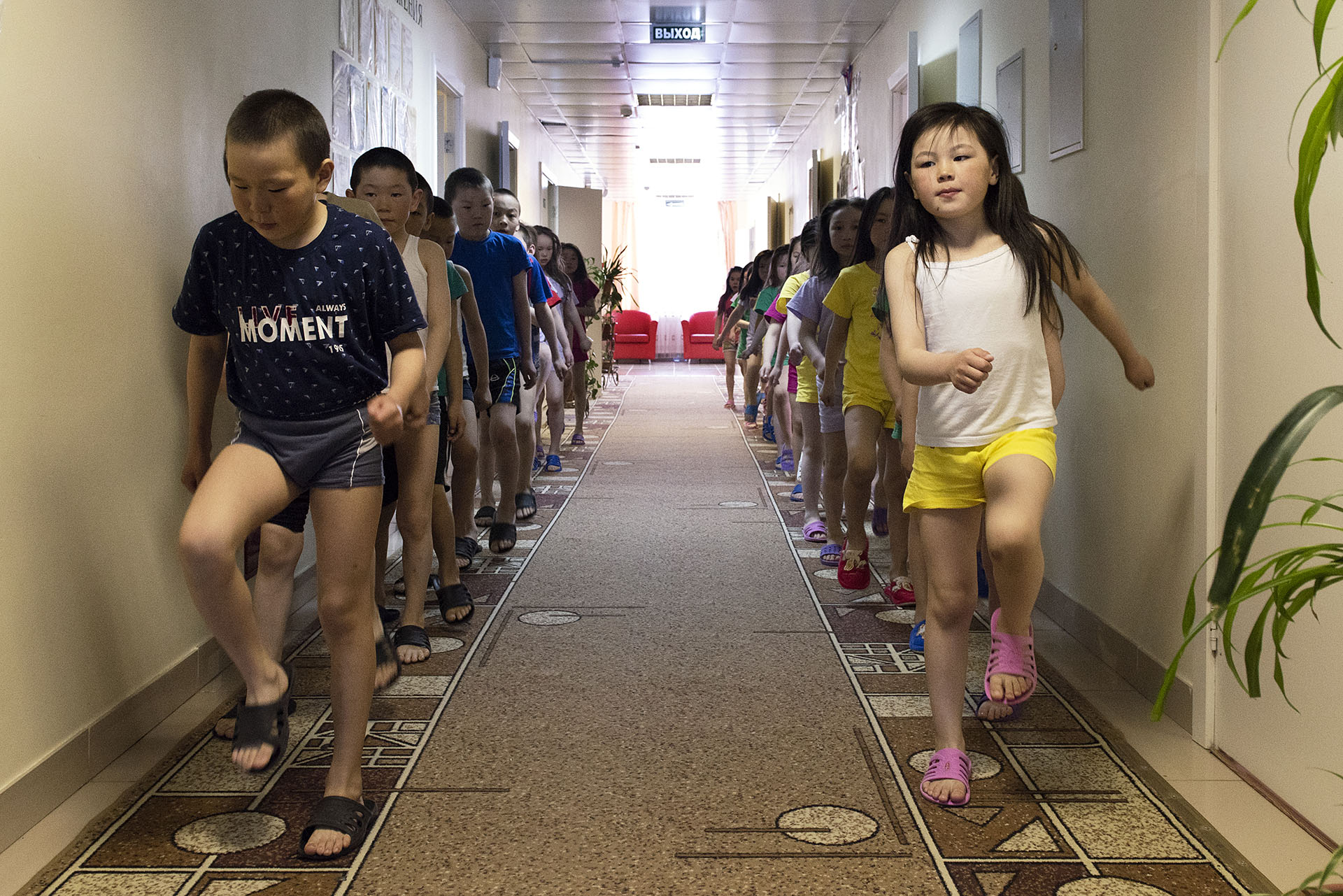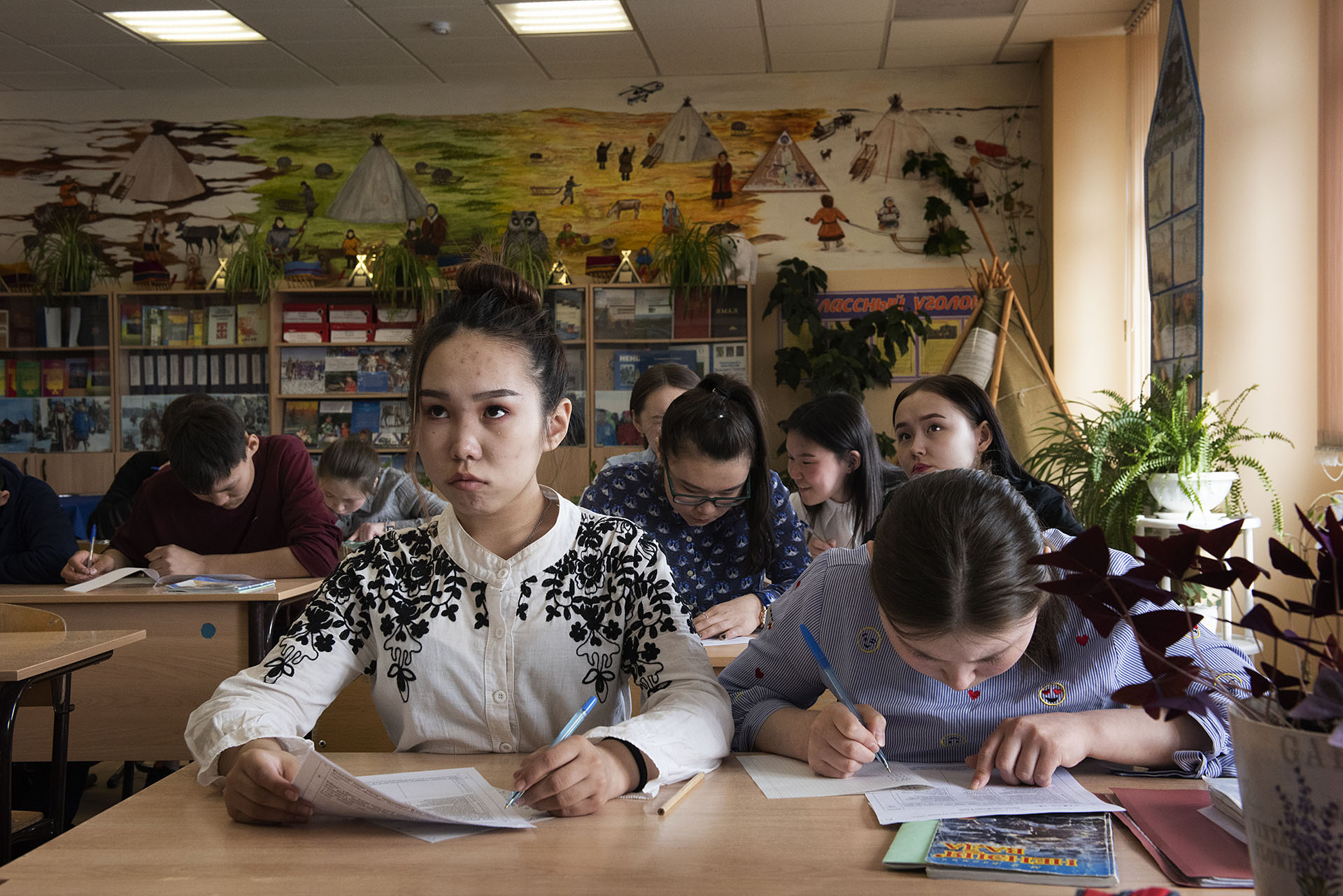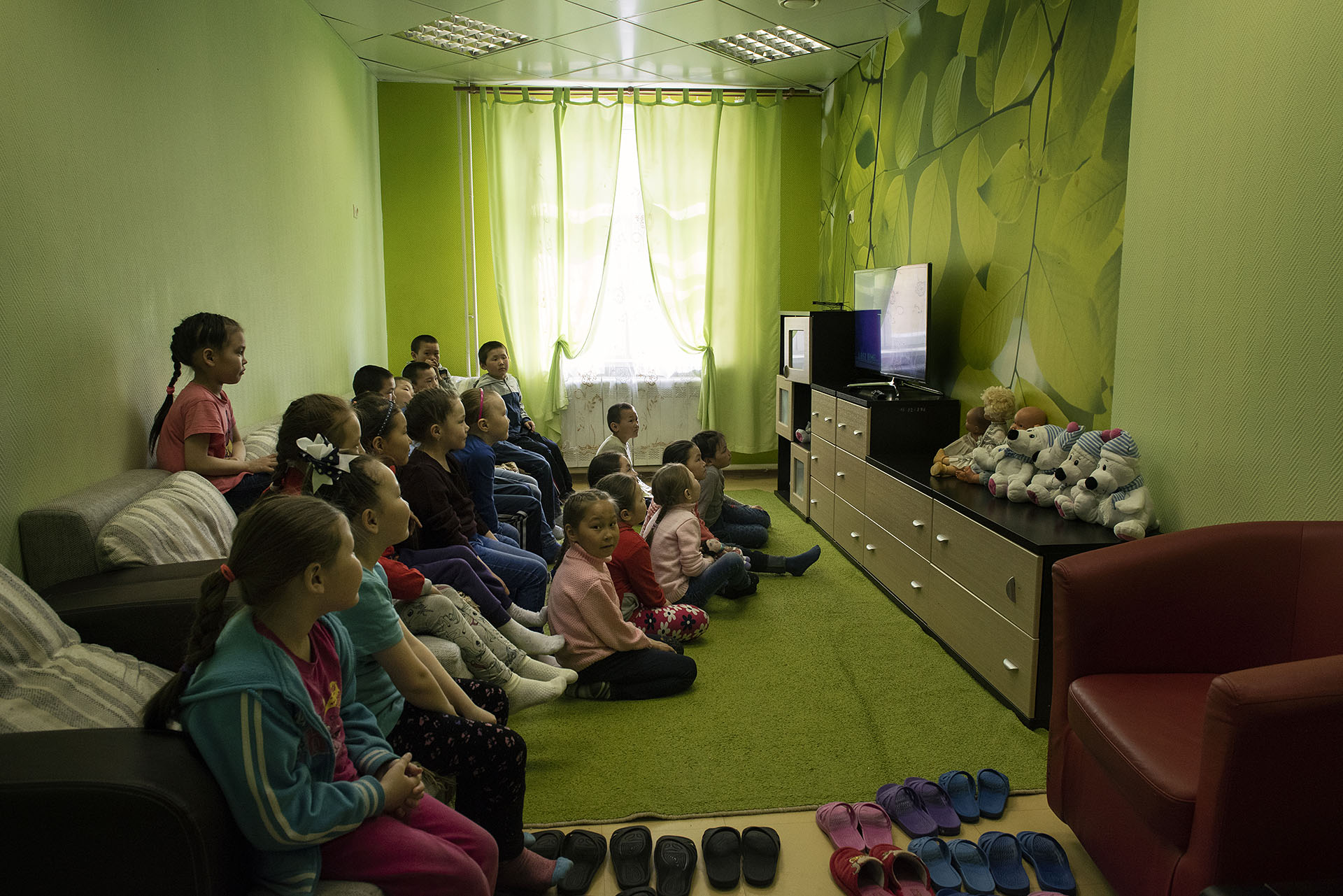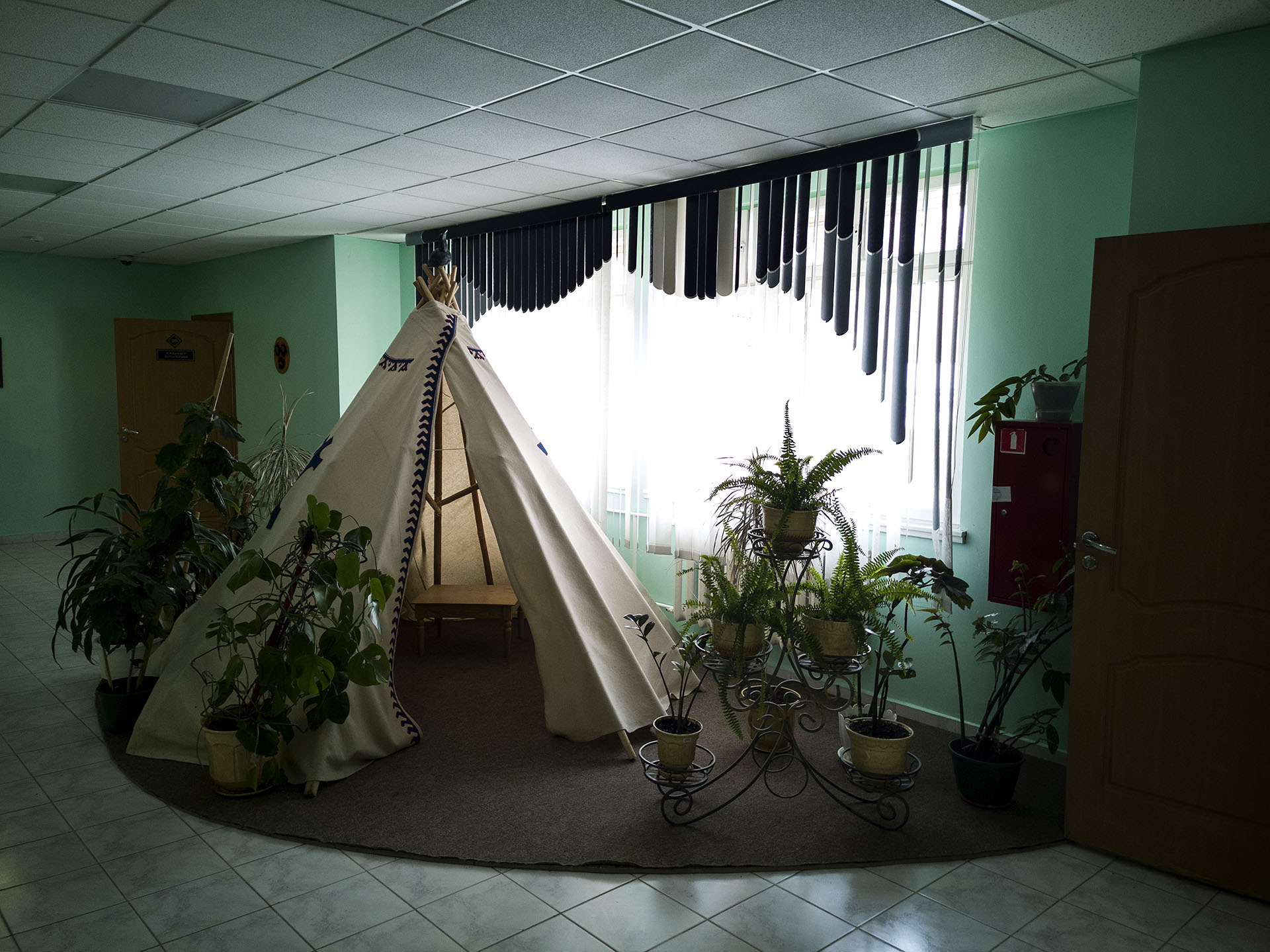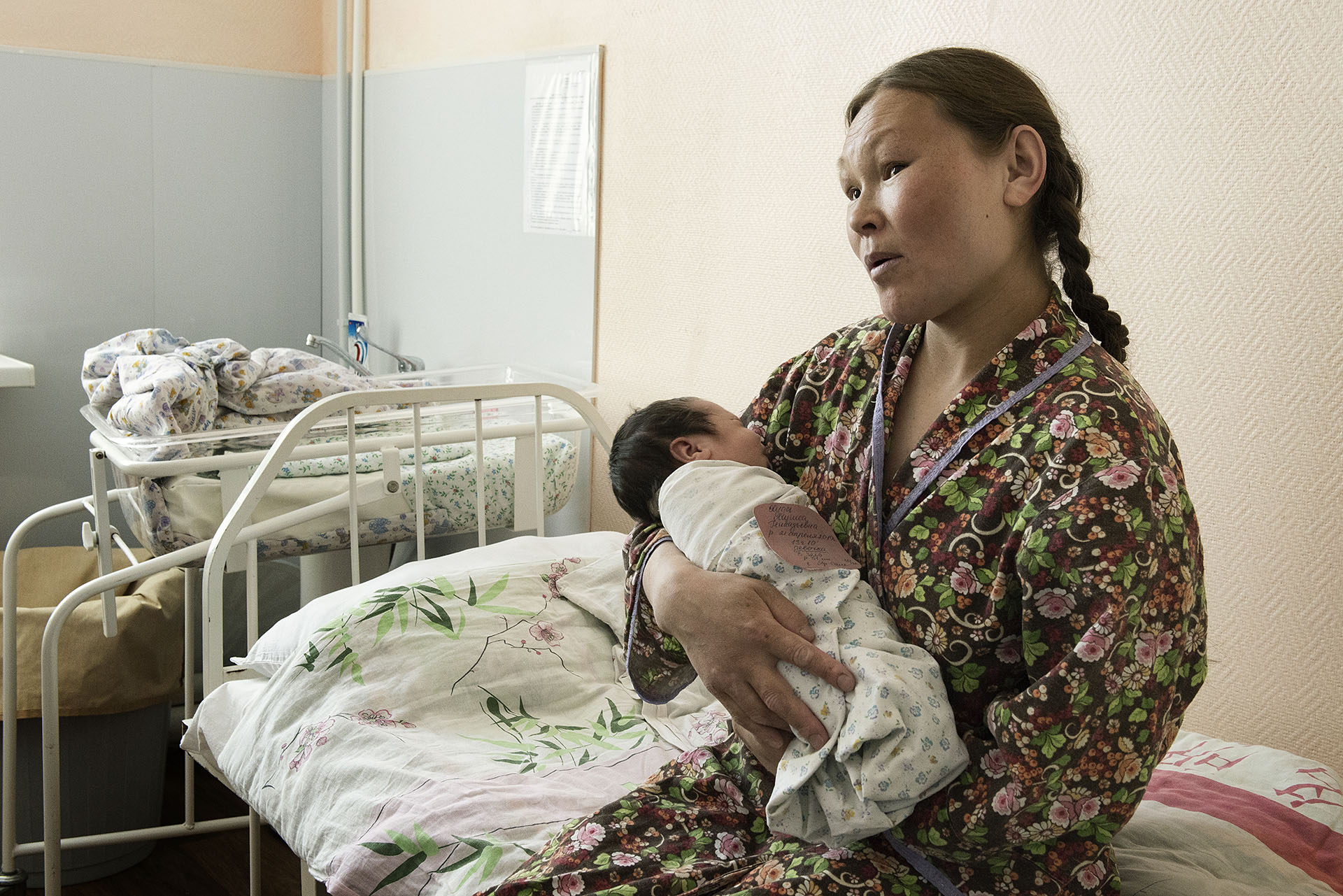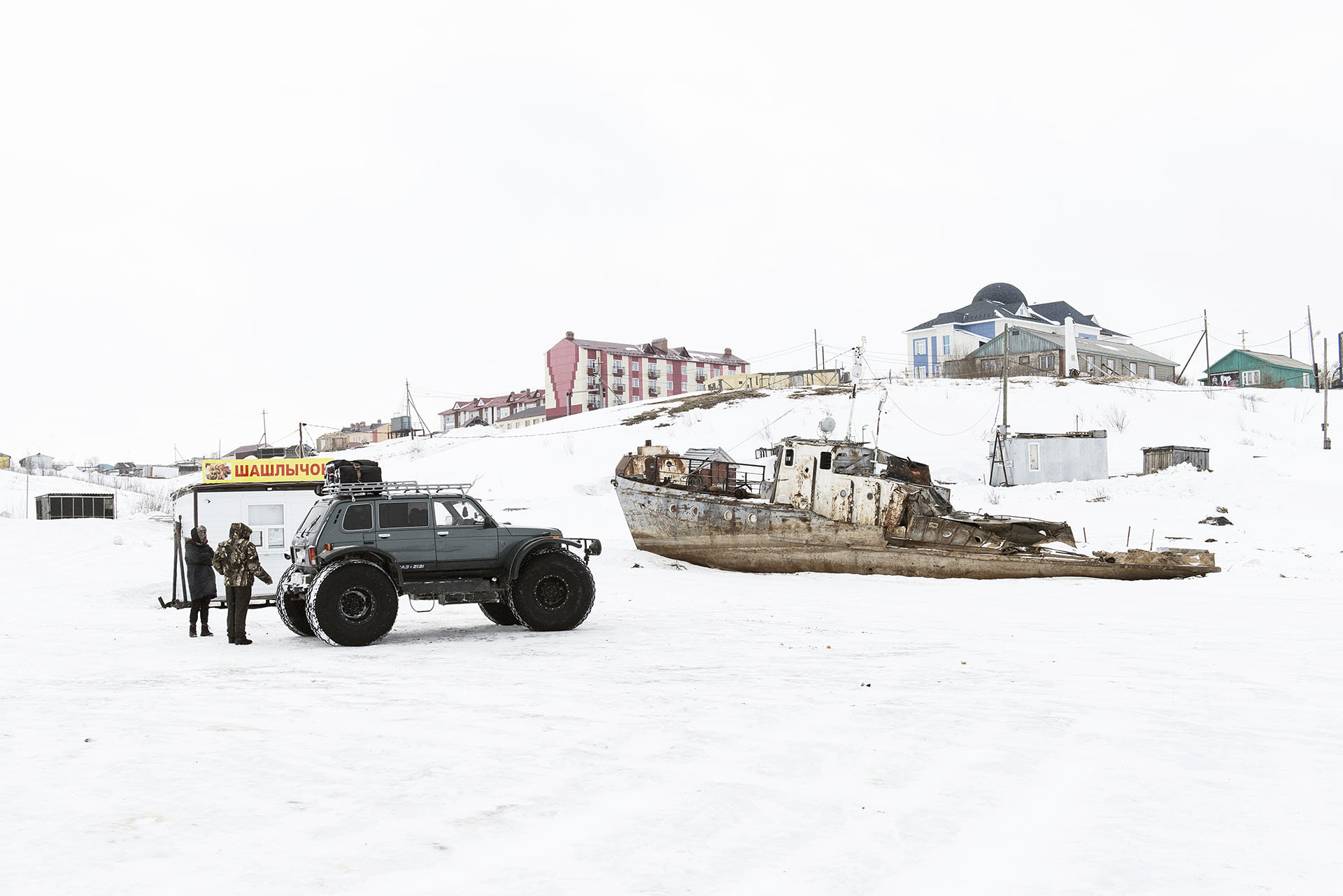Nomads of Gasland
for Stern, Germany 2019
The Nenets are an indigenous people in Russia’s high Arctic, maintaining a traditional nomadic way of life between the Kola and Taimyr peninsulas. Their livelihood is derived from breeding reindeer that provide them with food, transport and leather for their traditional ‘chum’ tents and clothing. The nomadic lifestyle is consists of constant movement in search of pastured for their livestock. Moving across frozen wastes for much of the year means that even the most basic aspects of modern life, such as electricity, heating, running water and phone connectivity, are completely absent. Children are taught domestic duties from a young age to help the adults in this labour-intensive, peripatetic life.
Since education is compulsory in Russia between the ages of seven and seventeen, Nenet children are sent to boarding schools during this time in their lives, separating them from their families for up to nine months a year while the rest of the group continues its seasonal migration. Speaking only the native Nenet language at home many children arrive at school without any knowledge of Russian and need to adapt to an alien environment with unfamiliar customs and rules. Most schools in the region do however have Indigenous teaching staff who are able to help Nenet children in their new environment.
The ten years of free education, which comes with free accommodation and school meals for the duration, is a mixed blessing for many families as the children are taught basic skills for a life in modern Russia but miss out on vital experiences and training in the skills of nomadic herders that have been passed down for generations and need to be taught at a young age.
Moreover, the level of education at state schools is usually not sufficient to qualify Nenet children for universities and few families have the financial means to send their children to distant cities. Nenet school leavers find themselves stuck between two cultures, ill-equipped for the tough adult life of reindeer herding yet mostly unable to seek further qualifications. The current challenge is to find a find ways of giving indigenous children quality education without causing too big a rift with traditional family life that has remained unchanged for centuries.
To add to fragile situation, large oil and gas deposits have been found under the frozen tundra of Russia’s Far North which has brought unfamiliar infrastructure like power lines, roads and migration from the cities to this remote part of the country.



